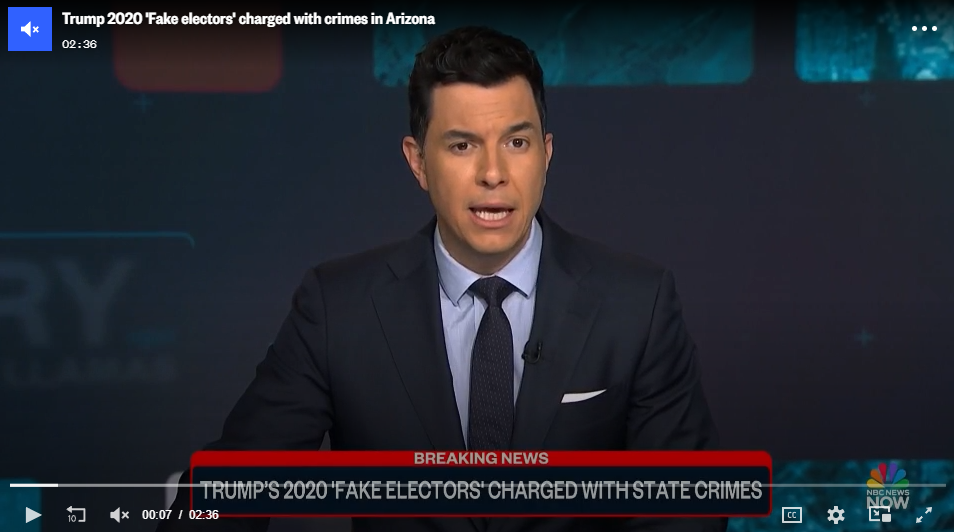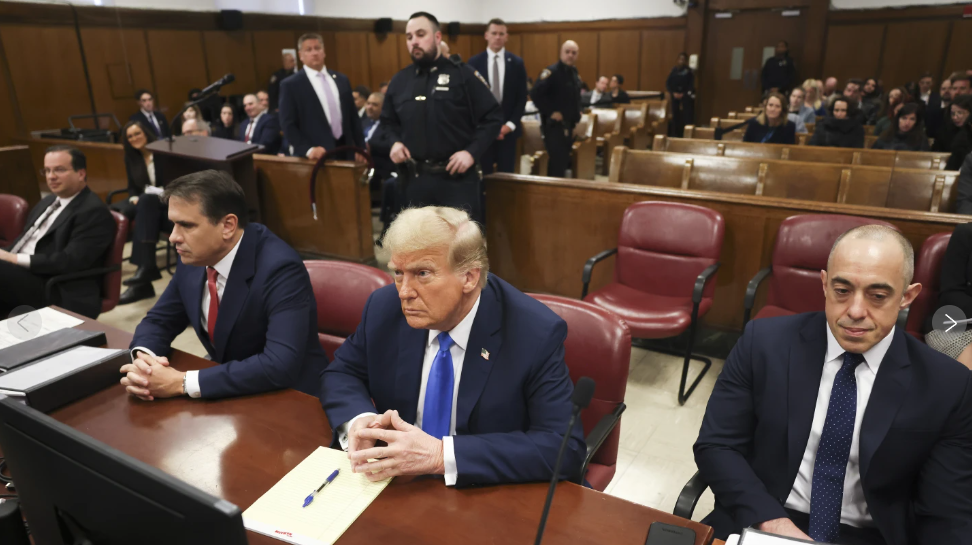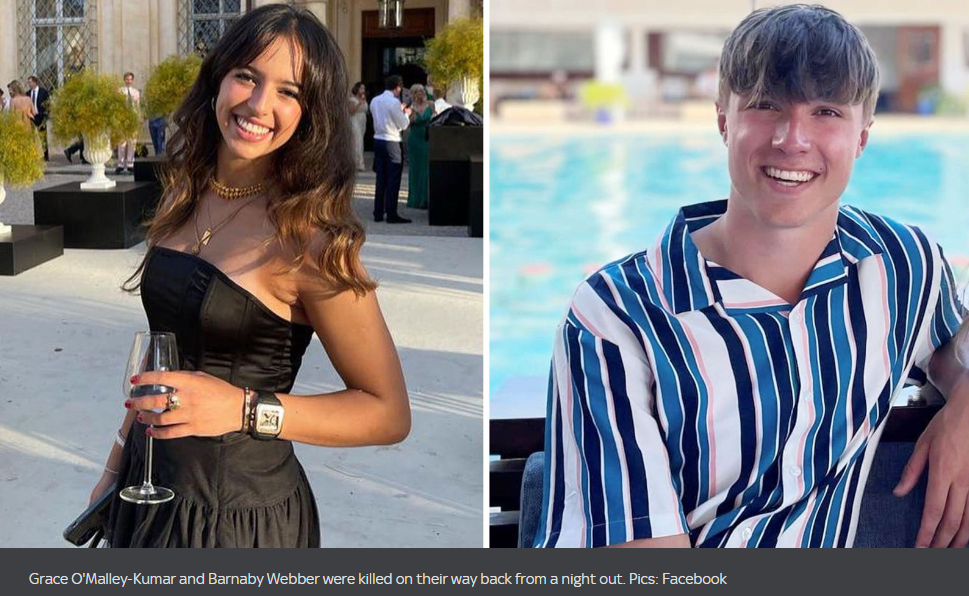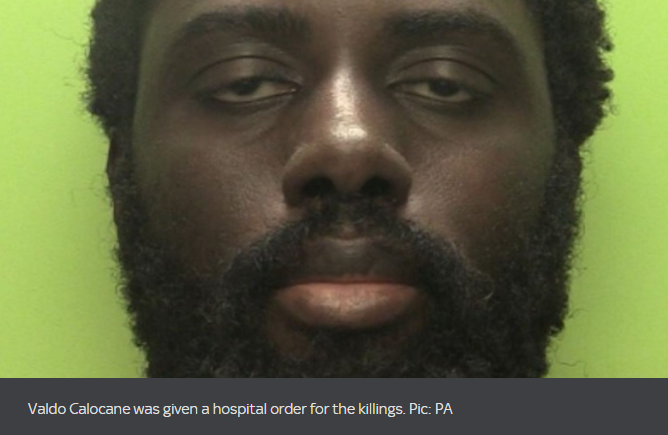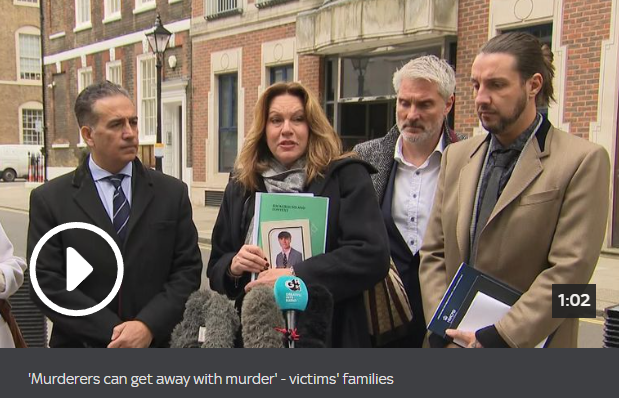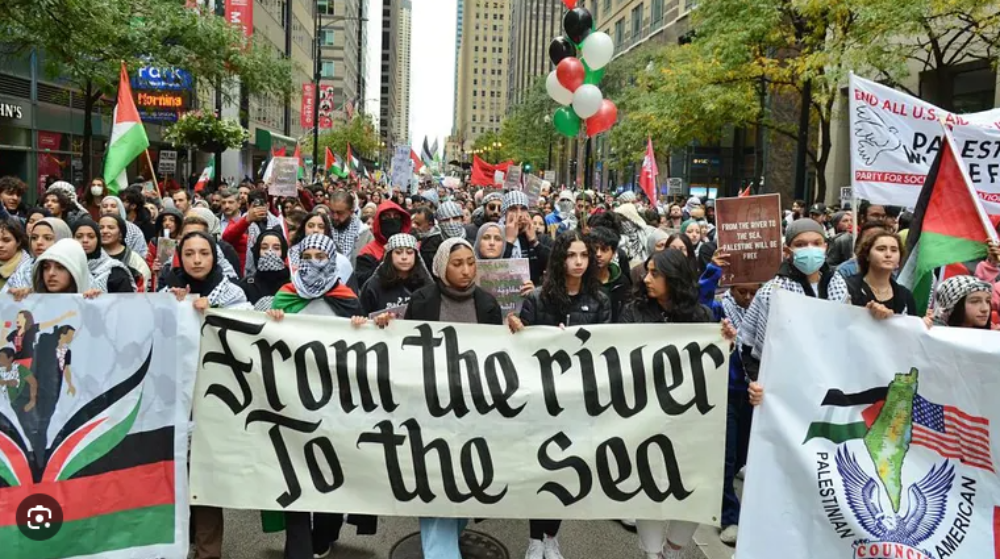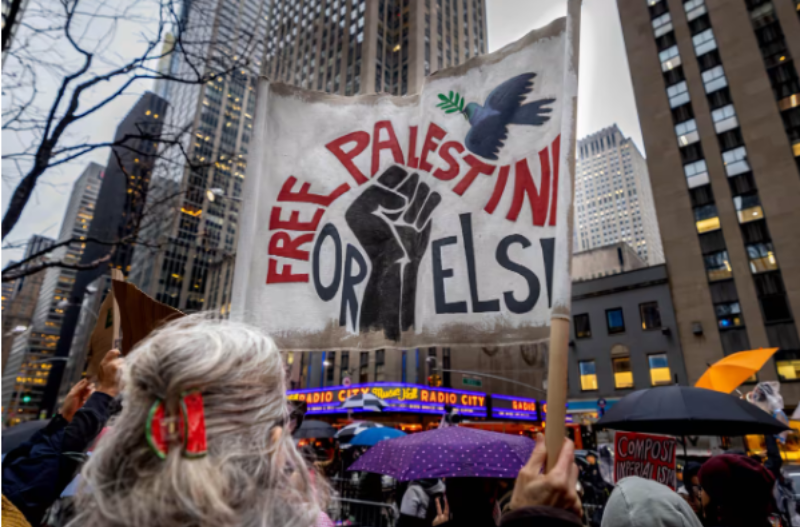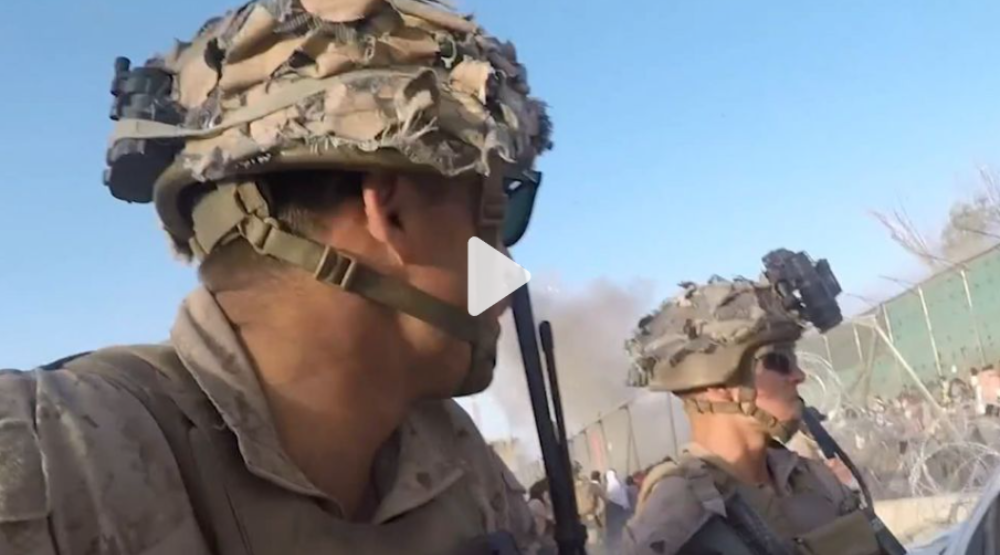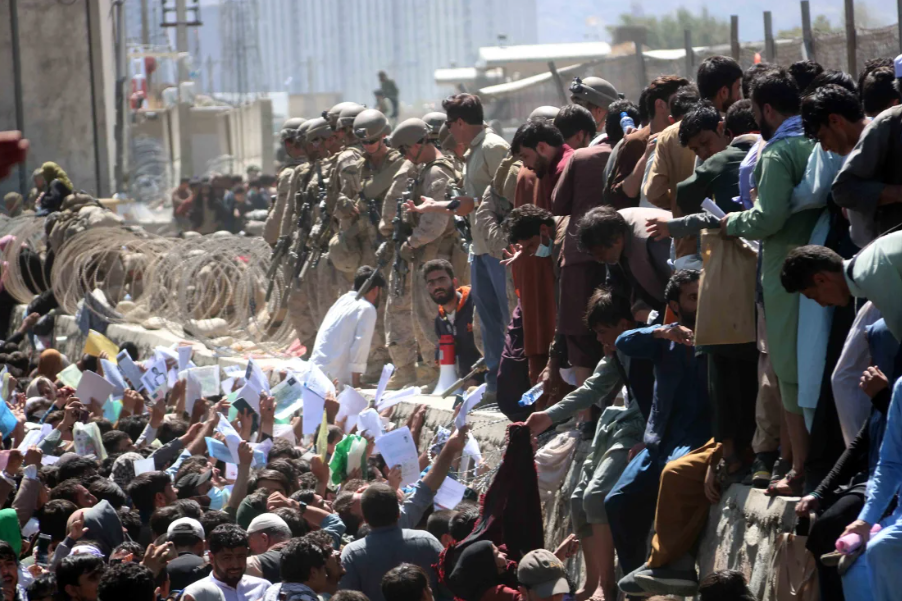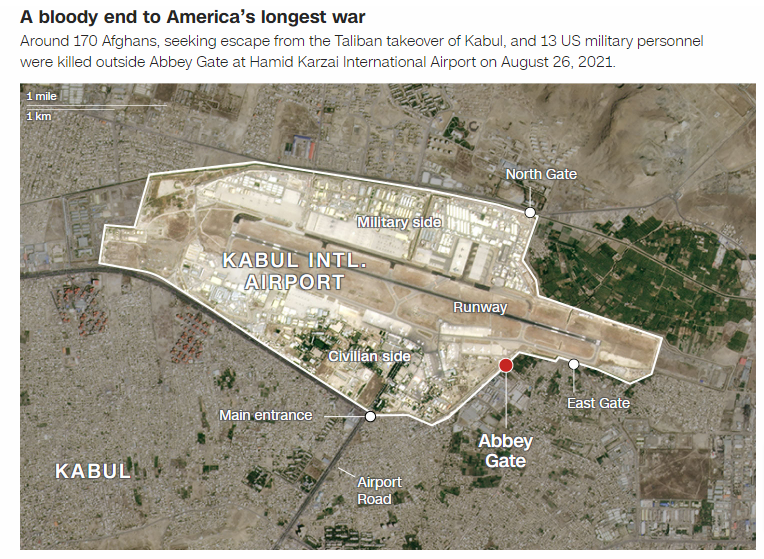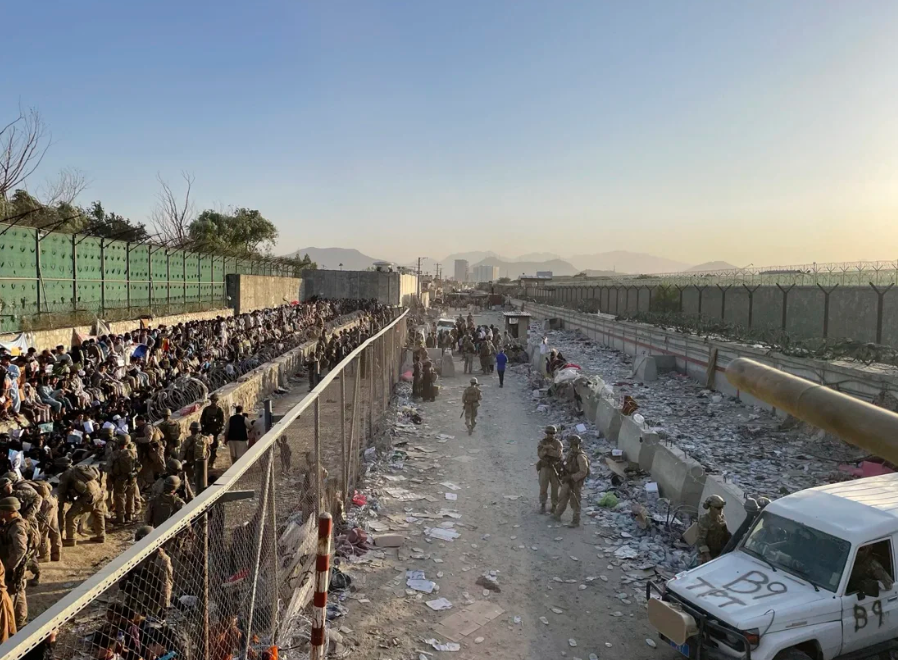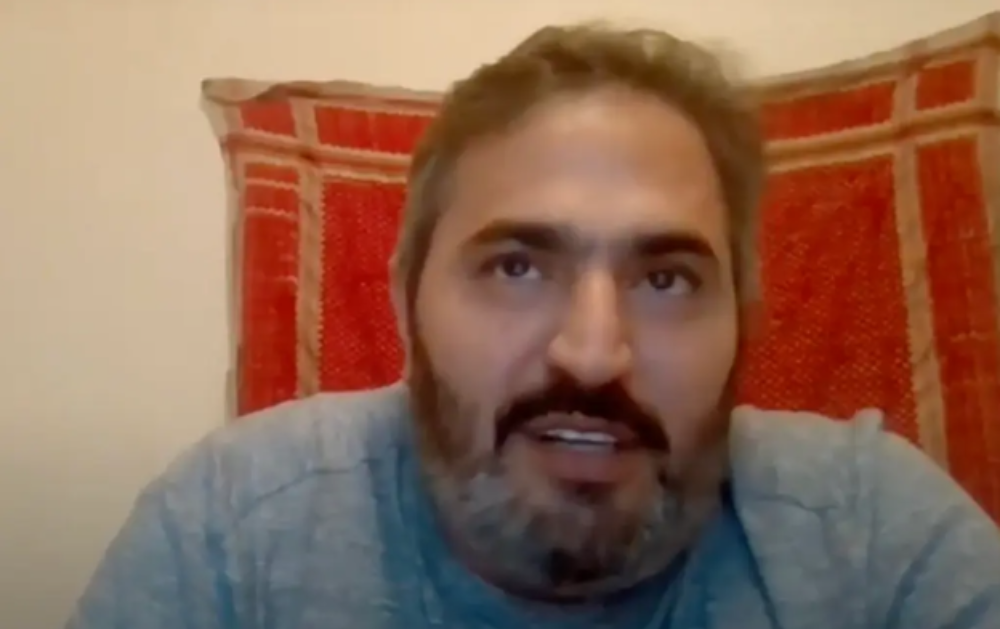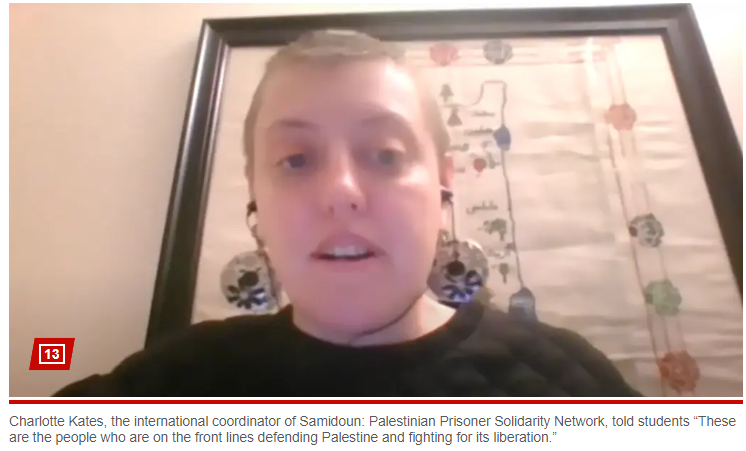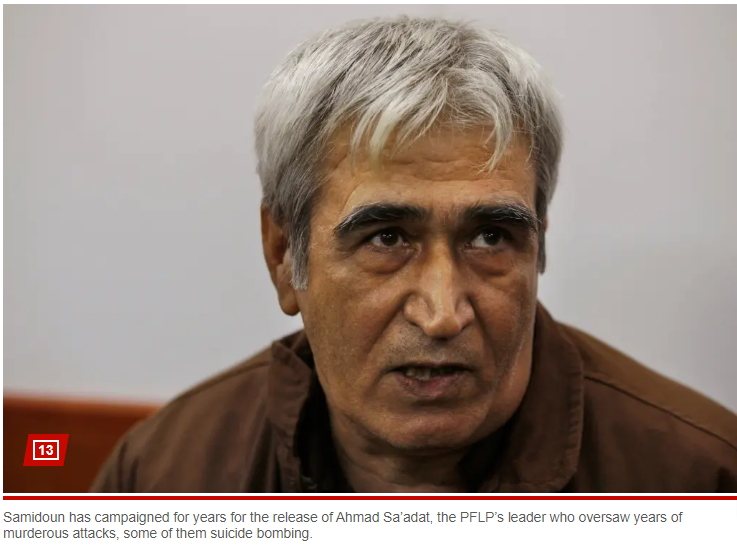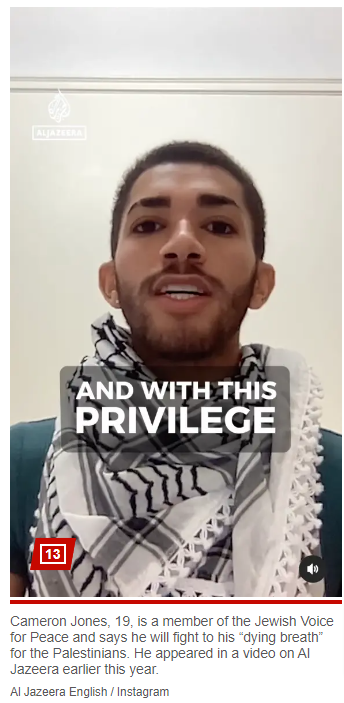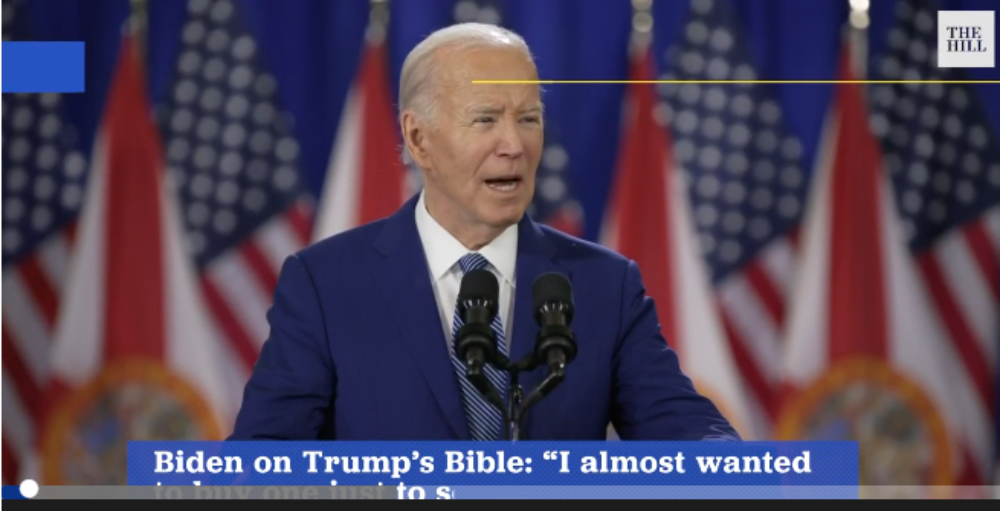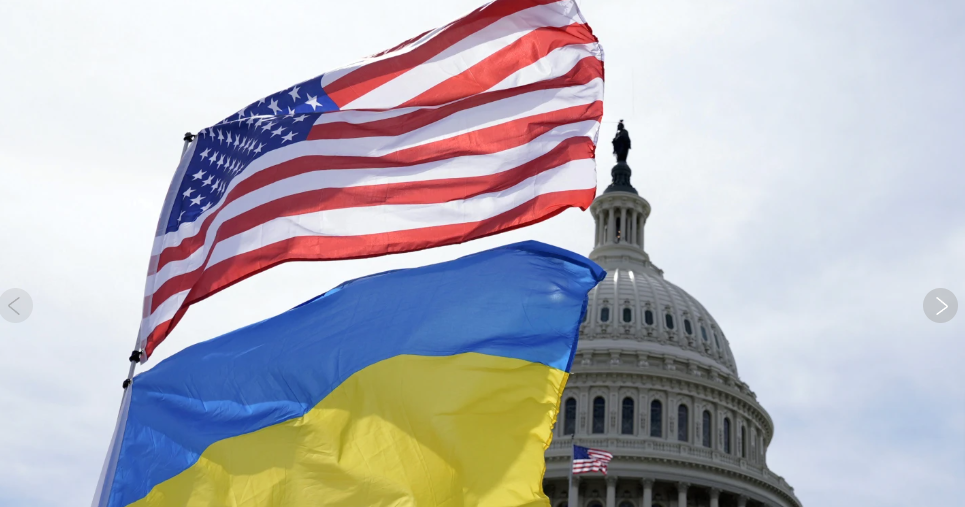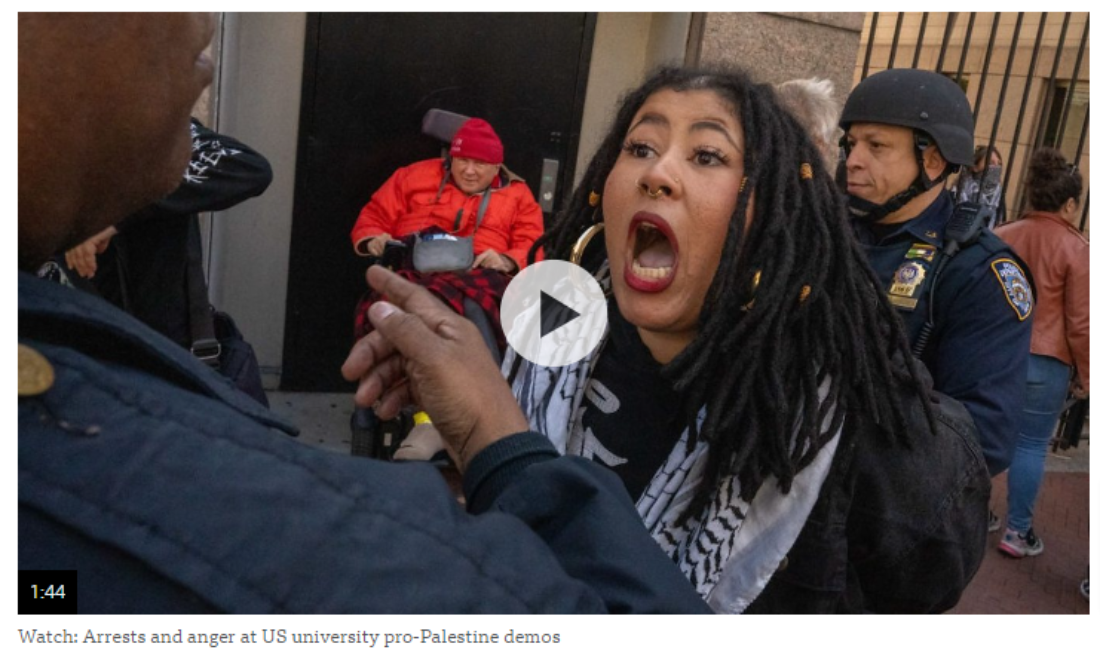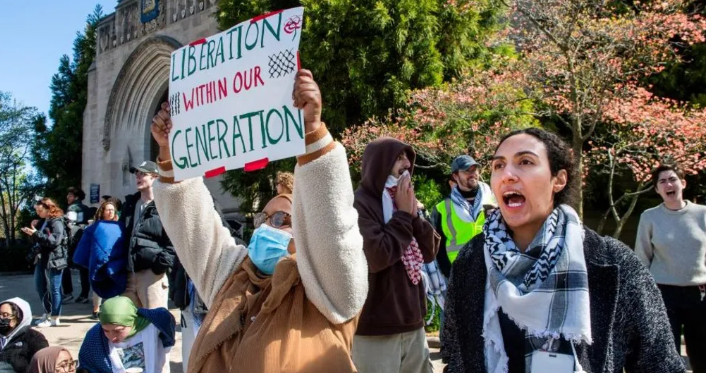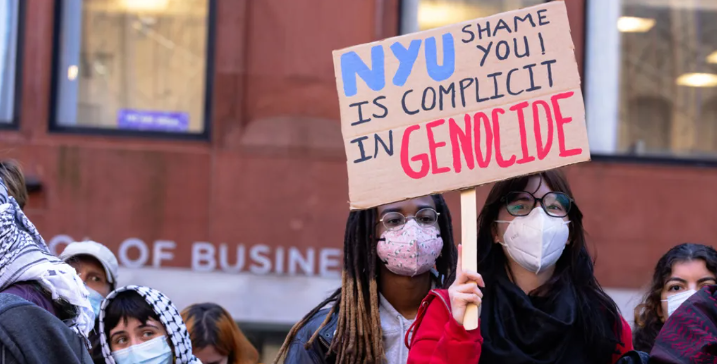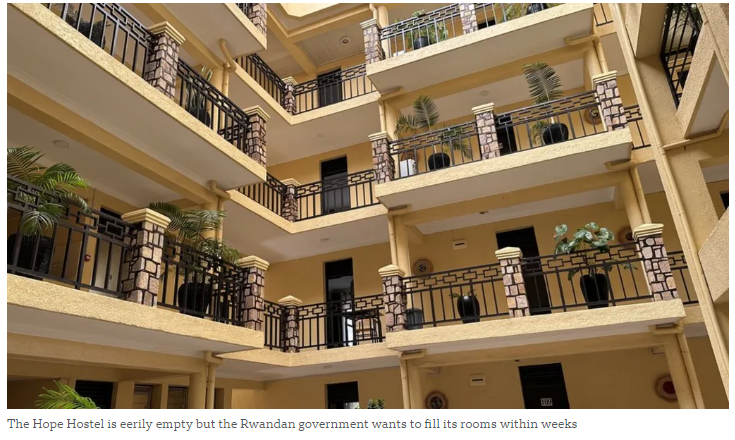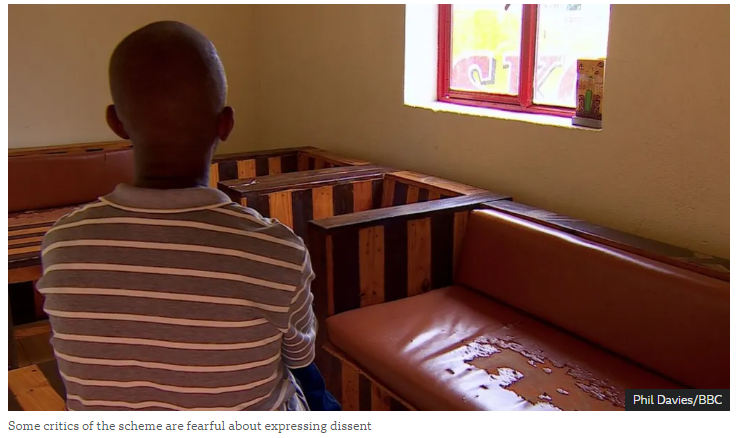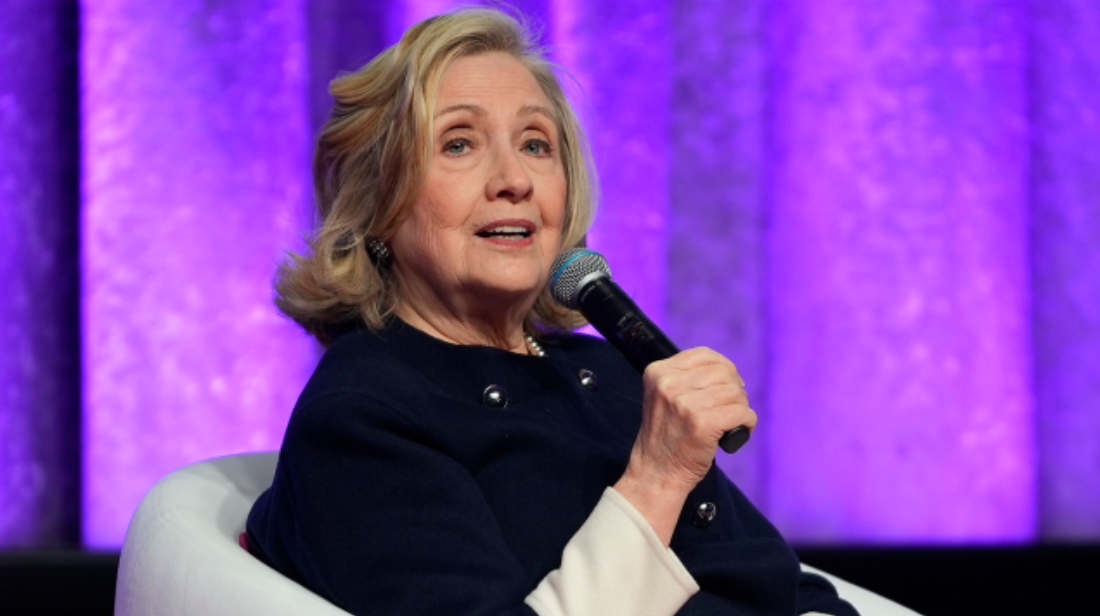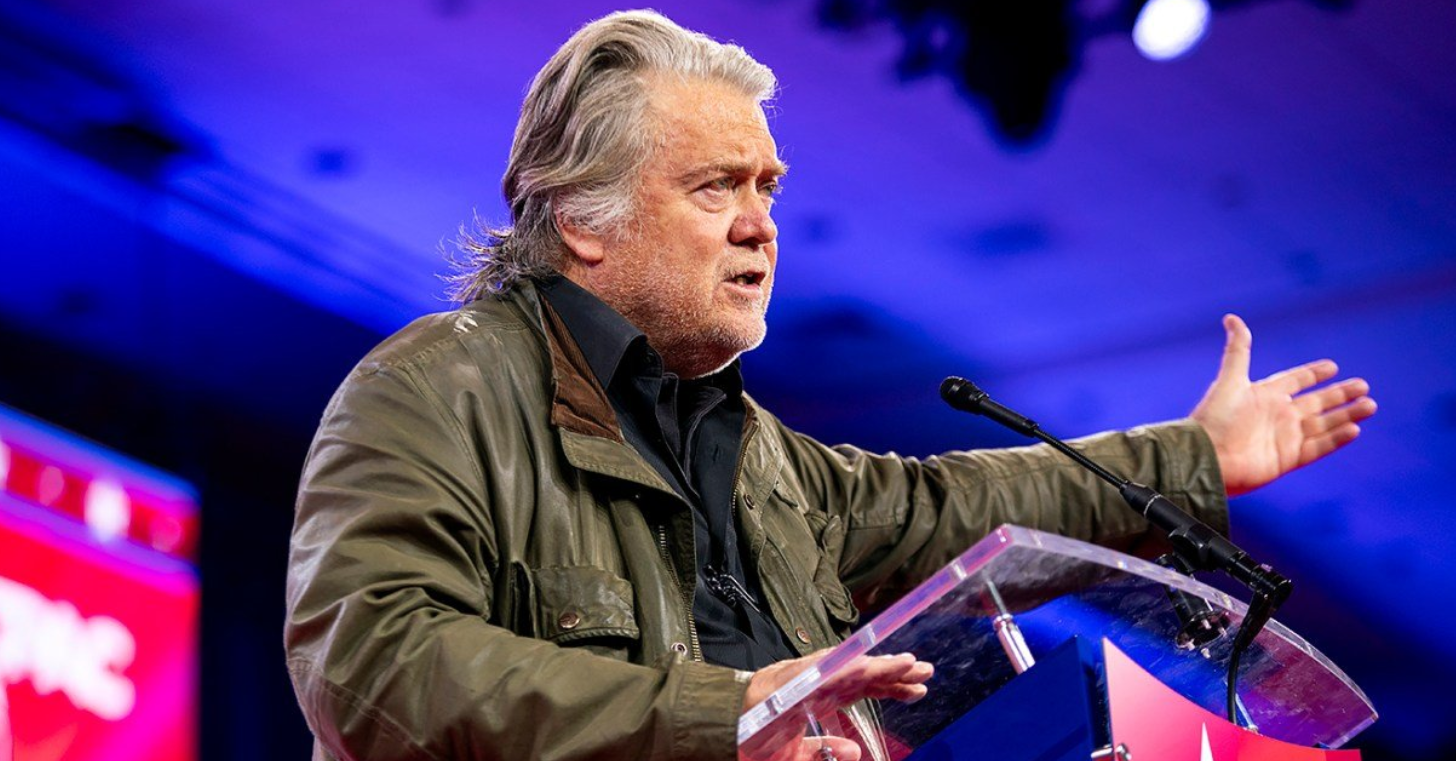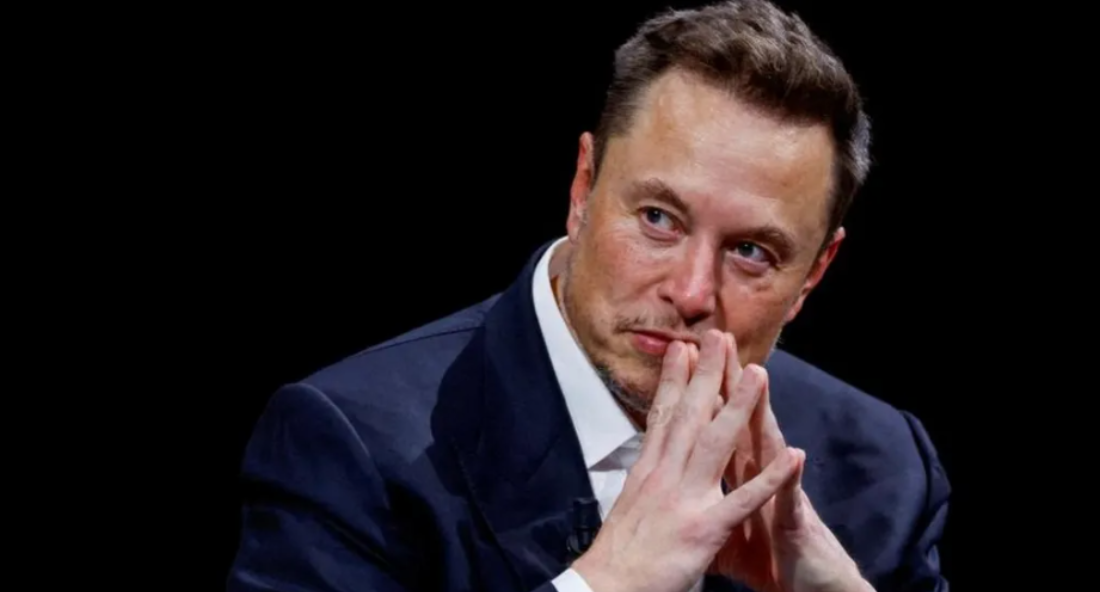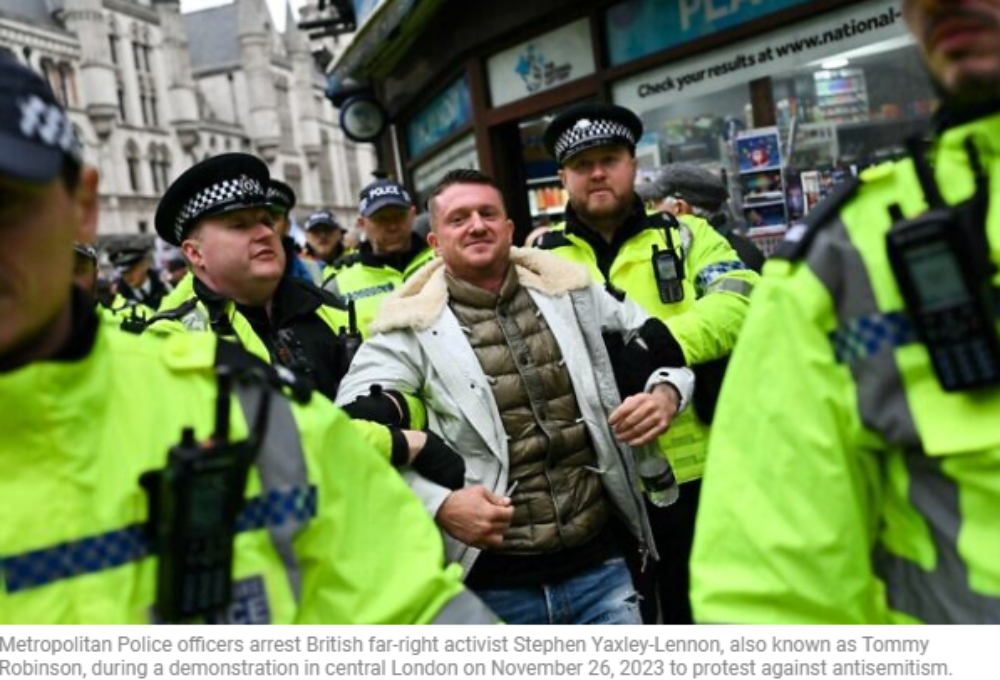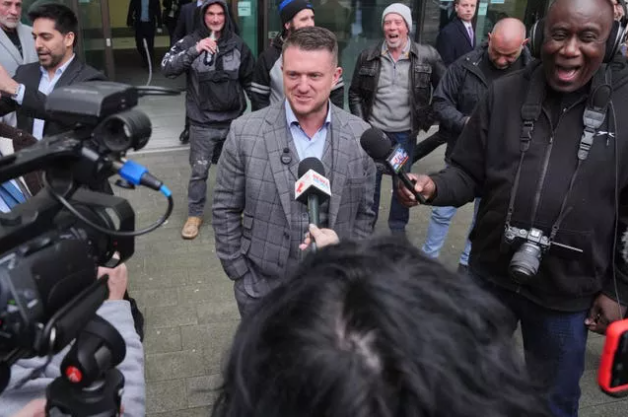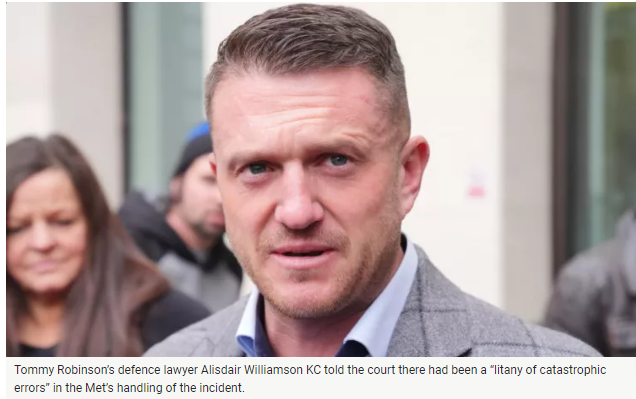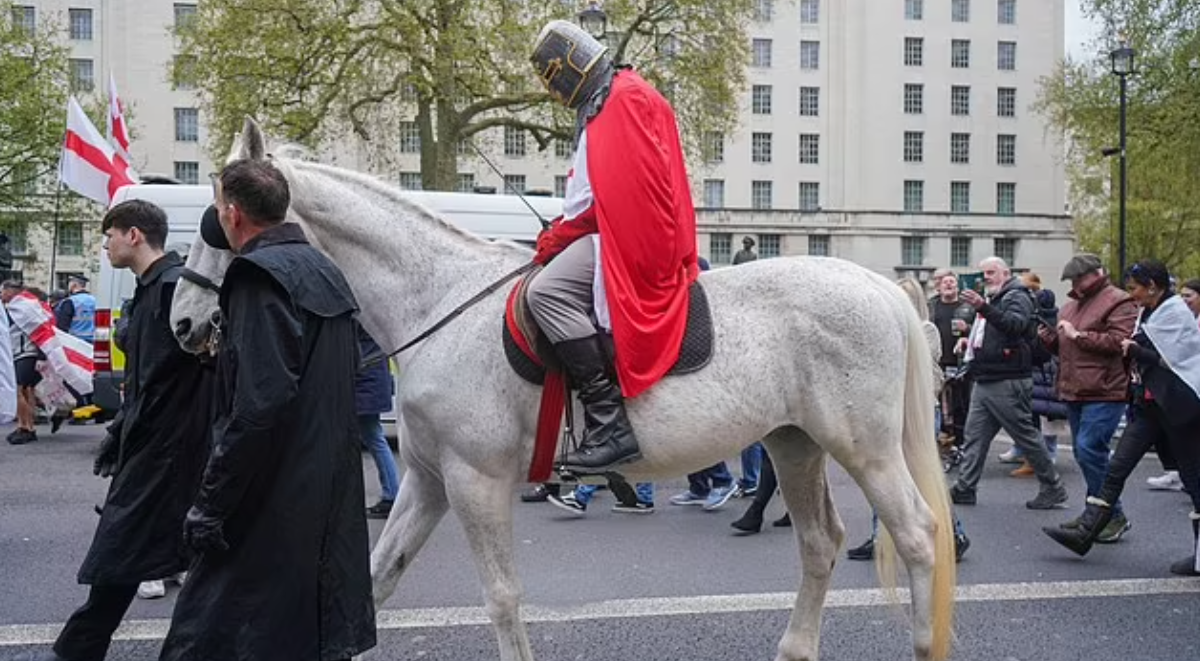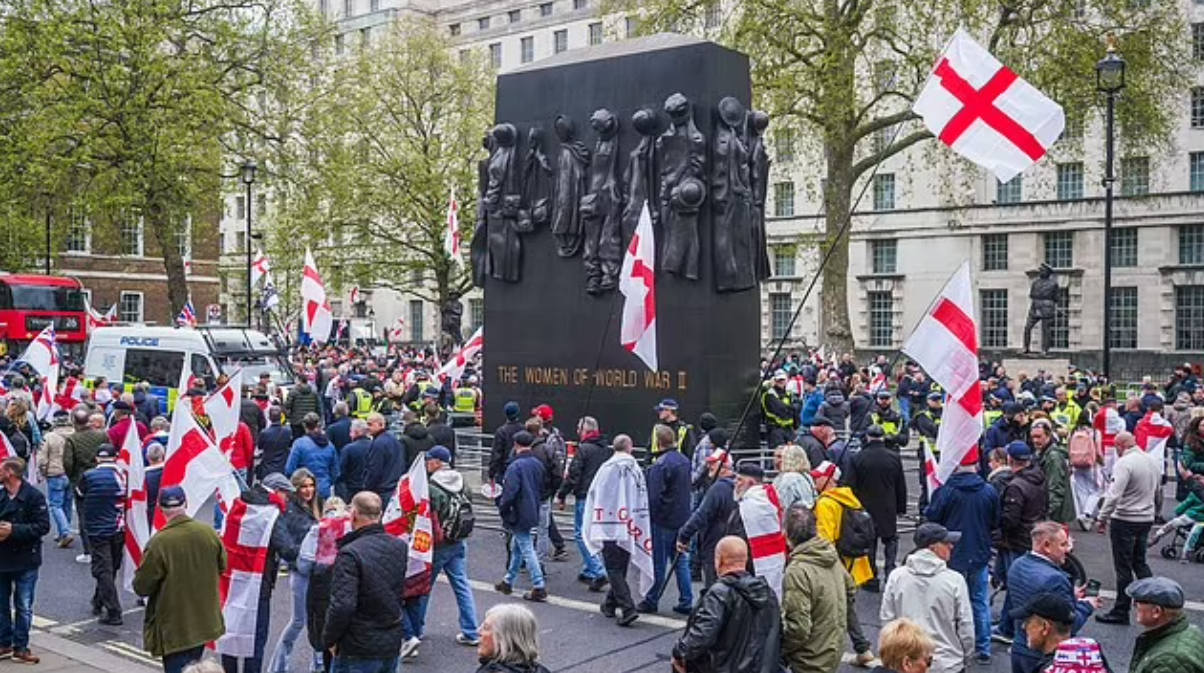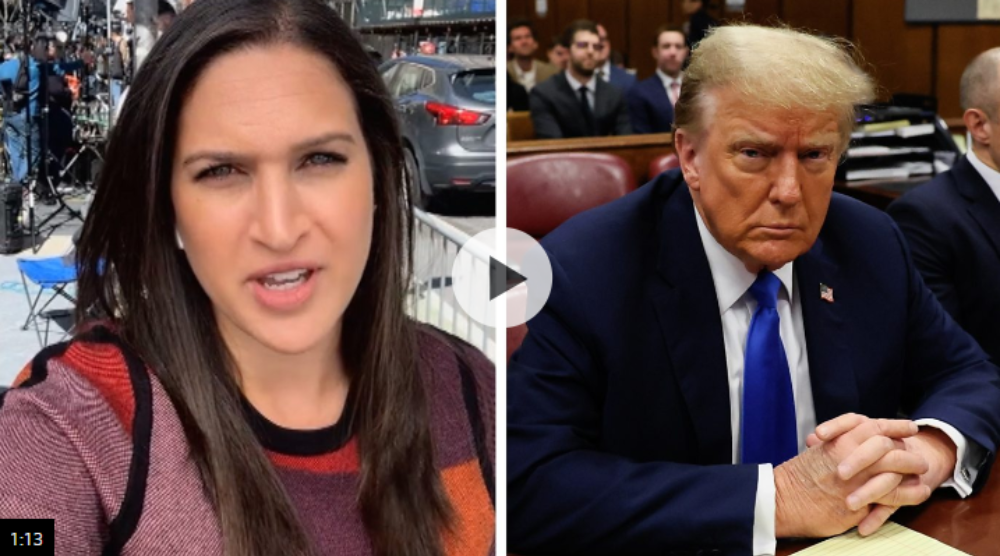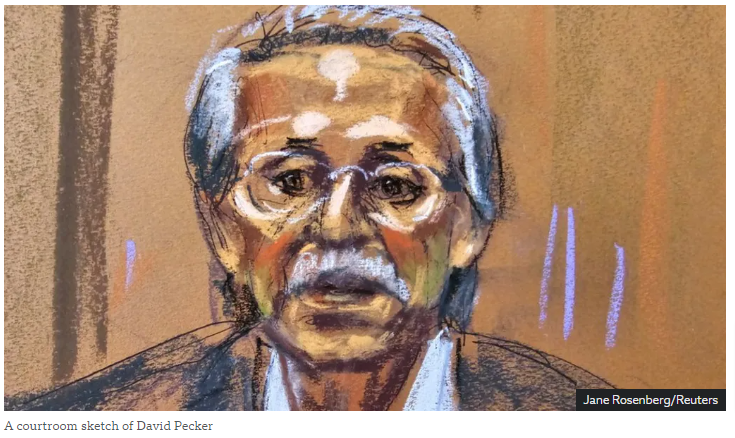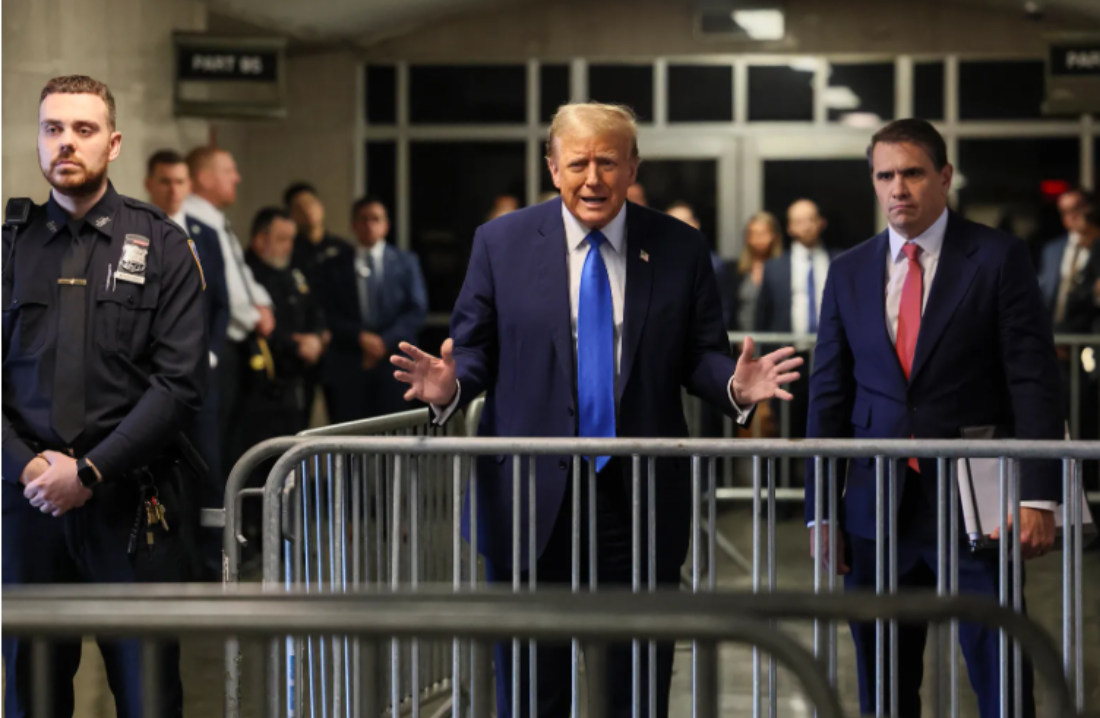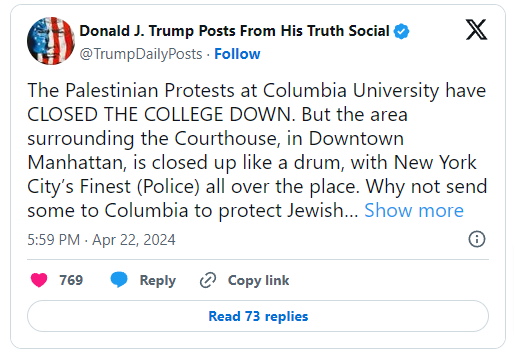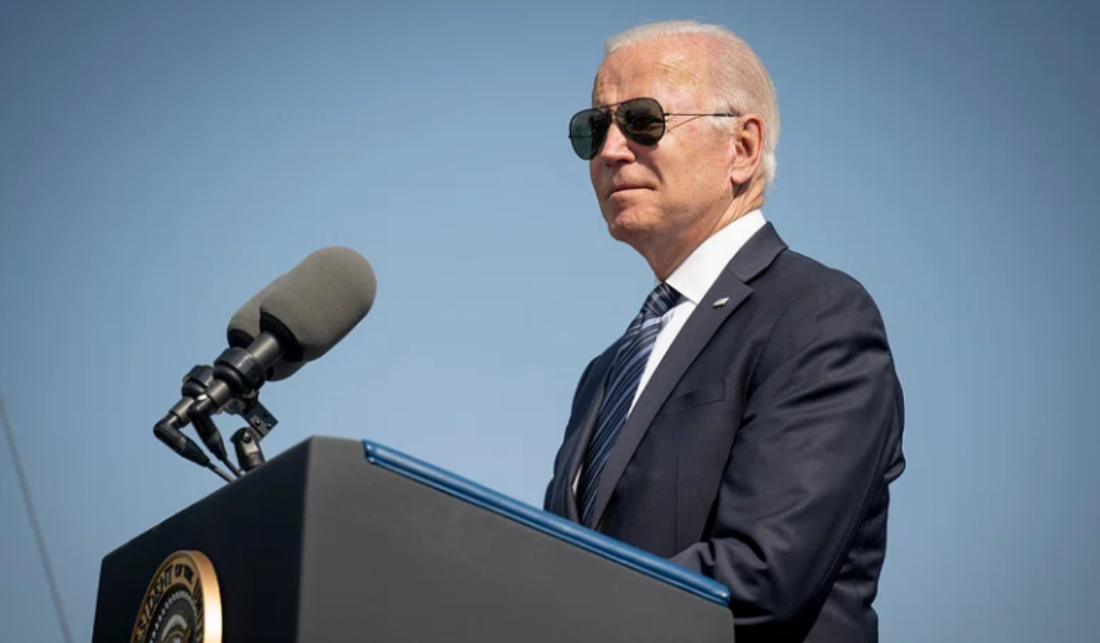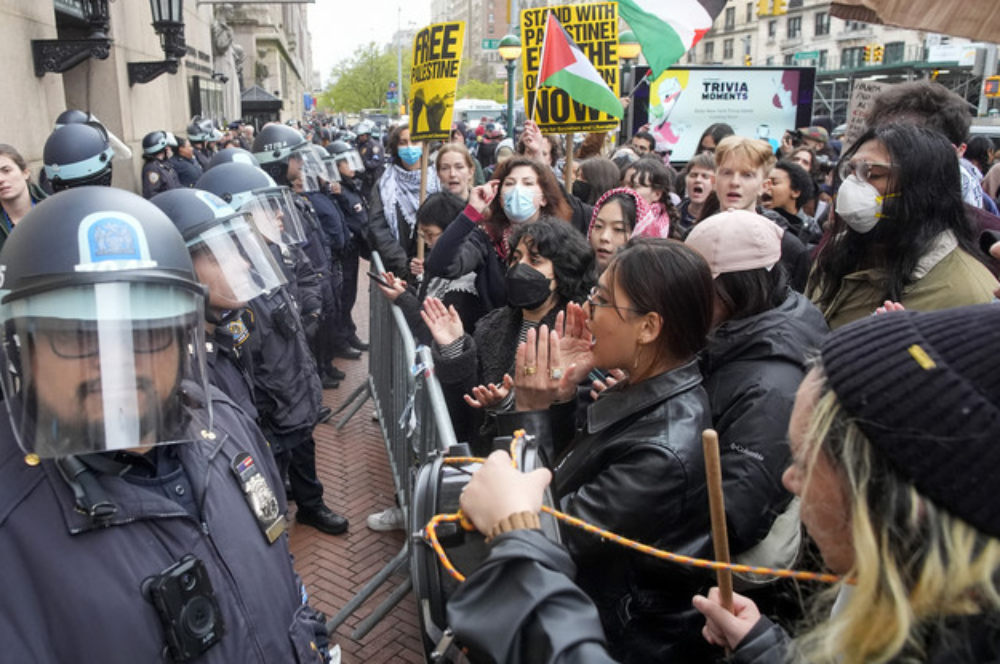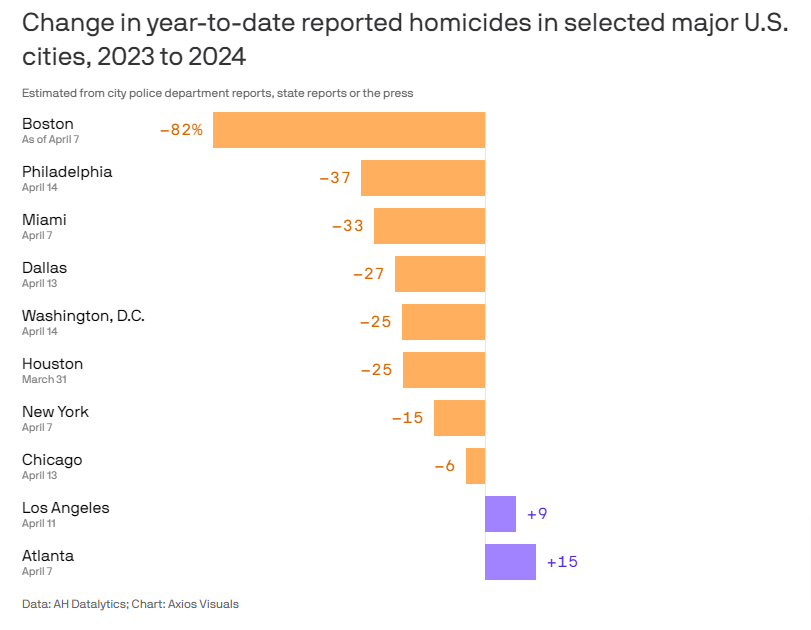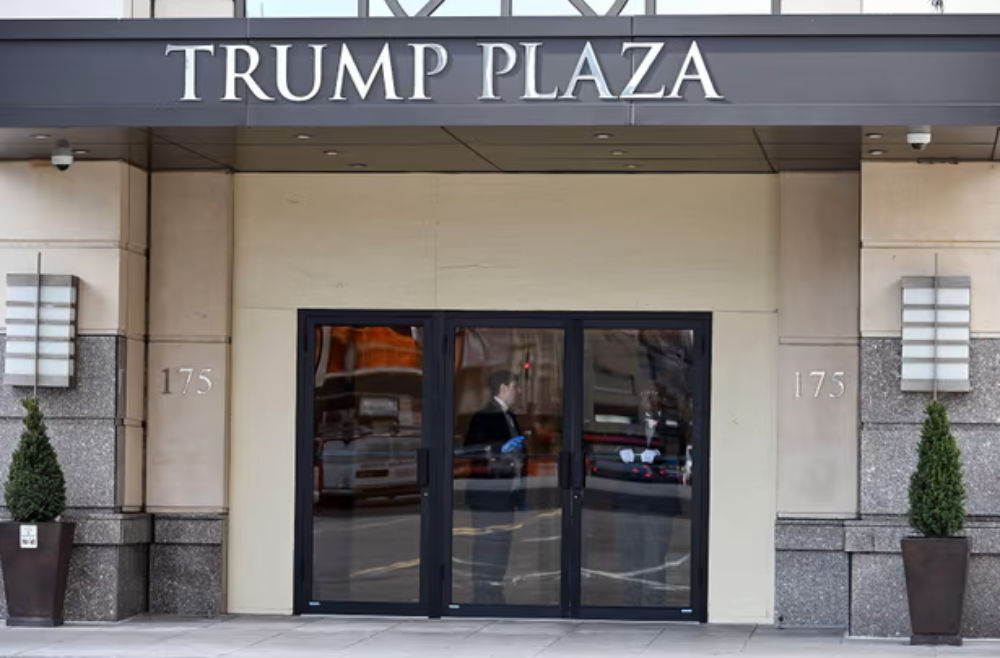-
Posts
5566 -
Joined
-
Last visited
Content Type
Profiles
Forums
Downloads
Everything posted by Social Media
-
Indictments have been handed down against individuals involved in the so-called "fake electors" scheme during the tumultuous aftermath of the 2020 presidential election. These indictments, which include key aides to former President Donald Trump, shed light on the extent of efforts to overturn the election results in favor of Trump. The indictments stem from an incident one month after the 2020 election, where 11 Trump supporters convened to sign a certificate falsely claiming to be Arizona's electors to the Electoral College, despite Joe Biden's victory in the state. Among those charged is Kelli Ward, former chair of the Arizona GOP, who had been vocal in spreading baseless claims of election fraud. Other individuals facing charges include state legislators, party activists, and Trump-aligned figures such as Tyler Bowyer, Michael Ward, and Greg Safsten. Notably, Trump himself is described as "Unindicted Coconspirator 1" in the indictment, signaling his alleged involvement in the scheme. Former White House chief of staff Mark Meadows and Trump campaign official Mike Roman are also implicated in the indictment, albeit under redacted names. The involvement of Meadows and Roman underscores the extent of Trump's inner circle embroiled in the controversy. The investigation, led by Arizona Attorney General Kris Mayes, culminated in these charges after a thorough examination of the fake electors scheme. Mayes, a Democrat, emphasized her commitment to upholding American democracy and preventing its subversion. These charges in Arizona are part of a broader trend of legal actions stemming from Trump's efforts to overturn the 2020 election results. Similar cases have emerged in other states like Nevada, Georgia, and Michigan, where alternate electors falsely claimed Trump's victory. The indictment sheds light on the strategy proposed by Trump's legal advisers, including John Eastman, to leverage the existence of alternate electors to overturn the election outcome. Despite Trump's loss in Arizona by a narrow margin, his attempts to pressure state officials and challenge the election results were met with resistance. Mayes' tenure as Arizona attorney general has been characterized by her pursuit of election-related cases following Trump's false claims of fraud. Her actions underscore the importance of holding accountable those who seek to undermine the integrity of the electoral process. As legal proceedings unfold, the Arizona case serves as a pivotal moment in the ongoing scrutiny of Trump's post-election actions and their repercussions. It highlights the resilience of democratic institutions in the face of attempts to subvert them, reaffirming the commitment to upholding the rule of law and protecting the integrity of elections. 2024-04-25 Source
-
While facing multiple cases, it's a trial in New York centered on hush money payments that could provide a crucial legal reckoning this year regarding Trump's actions surrounding the 2016 presidential election. Lead prosecutor Matthew Colangelo wasted no time in drawing a connection between the hush money case and Trump's 2016 presidential campaign during opening statements. He framed the payments to Stormy Daniels as part of "a criminal scheme to corrupt the 2016 presidential election," setting the stage for a trial that could have significant implications for Trump's future. The charges against Trump in the New York case focus on falsifying business records, but their significance extends far beyond mere record-keeping. Prosecutors argue that these falsifications were part of an effort to cover up violations of state and federal election laws, elevating the charges to felonies. While Trump has dismissed the case as a form of election interference orchestrated by Democrats, legal experts are divided on its implications. Trump's attorney, Todd Blanche, asserted that attempting to influence an election is a fundamental aspect of democracy and not inherently illegal. This perspective challenges the prosecution's narrative that the falsified records were intended to undermine the electoral process. Some legal experts share Blanche's skepticism, cautioning against conflating the hush money case with more direct election-related charges Trump faces elsewhere. Richard Hasen, a UCLA law professor, draws a clear distinction between attempts to alter vote totals and failing to disclose information on a government form. He argues that characterizing the New York case as election interference may be a strategic move by prosecutors to elevate its visibility, given the likelihood of delays in other pending trials. While Trump's defense maintains that the payments to Stormy Daniels were legitimate legal expenses, prosecutors argue that the falsification of business records was aimed at concealing damaging information from voters. Chris Edelson, an American University professor, believes prosecutors can successfully argue that Trump's actions deprived voters of crucial information needed to make informed decisions. The trial centers on a $130,000 payment made to Daniels by Trump's former lawyer, Michael Cohen, to silence her allegations of a sexual encounter with Trump before the 2016 election. While candidates may seek to suppress negative information, the prosecution contends that Trump's efforts crossed the line into unlawful conduct designed to deceive voters. As the trial unfolds, its outcome will be closely watched, not only for its legal ramifications but also for its potential impact on public perception. Whether Trump's actions are deemed criminal or merely political maneuvers remains to be seen, but the trial underscores the complexities of holding public figures accountable for their conduct, especially in the realm of electoral politics. 2024-04-25 Source
-
In a heartbreaking revelation, families affected by the tragic killings in Nottingham last summer have been left reeling after a disturbing police WhatsApp message surfaced, describing the brutal murders of two students and a school caretaker in shockingly callous terms. The message, shared among officers shortly after the killings of Barnaby Webber, Grace O'Malley-Kumar, and Ian Coates, described the victims as "proper butchered," causing outrage and anguish among their grieving families. The message's insensitive language, referring to the victims' injuries in gruesome detail, has left the families horrified and deeply distressed. The message said: "So 2 students on Ilkeston road have been proper butchered, 4 section [officers] turned up and tried to hold their inners in. Suspects then made off and attacked a man in a car on magdala [road] and stabbed him to death." Grace's father, Dr. Sanjoy Kumar, expressed his disgust, questioning the humanity of those responsible for the message. He highlighted the profound pain caused by the message's disregard for the victims' humanity, emphasizing the need for empathy and sensitivity in such circumstances. Emma Webber, Barnaby's mother, penned an emotional open letter to the members of the WhatsApp group, condemning the callous and degrading nature of their comments. She implored them to consider the terror and agony experienced by the victims during the attack, urging them to reflect on the gravity of their words and the impact they have had on the families' trauma. Mrs. Webber called for accountability and tougher action against the officer responsible for the message, emphasizing the importance of compassion and respect in handling such sensitive matters. She urged the officer to introspect and strive for greater empathy in their future actions, emphasizing the need for genuine remorse and understanding. The officer who authored the message faced management intervention but did not undergo a misconduct hearing, prompting criticism from the families and the public. Meanwhile, PC Matt Gell, who shared the message outside the force, was found guilty of gross misconduct and received a final written warning. The families' ordeal highlights the importance of sensitivity and empathy in law enforcement, especially when dealing with the aftermath of tragic events. The callousness displayed in the WhatsApp message serves as a stark reminder of the profound impact that insensitive language can have on grieving families and communities. 2024-04-25 Source
-
In the bustling streets of northern Taiwan, the glow of neon lights illuminates small stalls where a unique trade unfolds – the sale of betel nuts by young women, known locally as "betel nut beauties." These unconventional entrepreneurs, like Mong Shuan, have become emblematic figures, their stories shedding light on a fascinating aspect of Taiwanese culture. Mong Shuan's journey into this niche profession began at just 16, as she embarked on the task of selling betel nuts to passersby. For three years, she diligently worked six days a week, earning a modest income supplemented by bonuses for dressing provocatively to attract customers. Her role involved meticulously preparing the betel nuts, ensuring they were enticing to potential buyers. Yet, it was her appearance, adorned with dyed red hair and a schoolgirl outfit reminiscent of Sailor Moon, that often proved most effective in drawing patrons. The phenomenon of "betel nut beauties" traces its roots back to the late 1960s when the Shuangdong Betel Nut Stand popularized the concept with its "Shuangdong Girls" campaign. By the turn of the 21st century, thousands of similar stalls, adorned with neon lights, dotted the Taiwanese landscape, manned by young women hoping to earn a living. Photographer Constanze Han embarked on a mission to document this cultural phenomenon, capturing the essence of these women during her travels from Taipei to Kaohsiung. Han's fascination with the betel nut beauties stemmed from childhood memories of encountering them on trips to her grandfather's house. Despite initial misconceptions likening them to figures in Amsterdam's red-light district, Han discovered a nuanced reality – one where these women, though scantily clad, were not synonymous with prostitution. Instead, they were industrious workers striving to make ends meet in a society that often misunderstood their profession. Through her lens, Han sought to challenge stereotypes and provide a glimpse into the lives of these women. Spending time with her subjects, she delved into their experiences, capturing candid moments that revealed the mundane nature of their work. From the neon-lit booths to the quiet reflections of the women within, each photograph offered a window into their world, free from judgment or sensationalism. However, concerns about exploitation lingered, prompting regulatory measures to address dress codes and working conditions. Despite efforts to mitigate these issues, the decline in betel nut consumption suggests that this unique facet of Taiwanese life may fade with time. Yet, Han's evocative photographs serve as a testament to the resilience and complexity of the betel nut beauties, offering viewers a deeper understanding of their lives and the cultural landscape they inhabit. 2024-04-25 Source
-
In a decisive move to address national security concerns, the Senate has passed a bill that would compel ByteDance, the Chinese parent company of TikTok, to divest itself of the popular social media platform within a year or face a ban in the United States. The legislation, which was included in a foreign aid package, garnered overwhelming bipartisan support and is expected to be signed into law by President Joe Biden. The bill, which passed with a vote of 79-18 in the Senate, comes amidst growing apprehensions among lawmakers and intelligence officials regarding TikTok's ownership by a China-based company. There are concerns that the Chinese government's national security laws could potentially compromise the data privacy of TikTok's US users, as these laws grant authorities the power to access internal information from companies based in China. Senate Commerce Committee Chair Maria Cantwell emphasized that the legislation aims to prevent foreign adversaries from conducting espionage and harming vulnerable Americans. Similarly, Senate Intelligence Committee Chair Mark Warner highlighted the risks associated with Chinese companies' allegiance to the Chinese government, underscoring the potential for covert manipulation of social media platforms to serve authoritarian agendas. Despite assurances from TikTok that it does not store US user data in China, skepticism remains regarding the platform's data governance practices. Warner dismissed TikTok's proposed solution, Project Texas, as inadequate, stating that it would still leave crucial elements of TikTok's operations vulnerable to Chinese government exploitation. Acknowledging concerns among TikTok users, particularly young Americans, Warner assured that the legislation is not an attempt to silence voices but rather to safeguard national security interests. He encouraged transparency and underscored the importance of robust consumer protections in the tech industry. President Biden reaffirmed his commitment to signing the bill into law promptly, emphasizing the urgency of supporting Ukraine amidst escalating tensions with Russia. However, TikTok has indicated its intention to challenge the legislation in court, signaling potential legal battles ahead. As the bill awaits presidential approval, its passage reflects a concerted effort by lawmakers to address emerging threats posed by foreign-controlled platforms and safeguard US interests in an increasingly complex digital landscape. 2024-04-25 Source
-
What initially seemed like expressions of dissent have taken a darker turn, revealing a coordinated effort by extremist groups to sow discord and promote their agenda under the guise of activism. The incidents at Columbia University, where demonstrators openly voiced support for terrorist organizations and disrupted the Easter vigil at St. Patrick’s Cathedral in New York, are just the tip of the iceberg. Behind these seemingly spontaneous outbursts lies a carefully orchestrated campaign to leverage public sentiment and influence policy decisions. What's most concerning is the lack of attention given to the protesters' demands, which go beyond calls for a cease-fire in the Israel-Hamas conflict. Instead, these demonstrations serve as platforms for extremist groups like Hamas, Hezbollah, and the Houthis to push their radical ideologies and incite violence against Israel and its supporters. Delving deeper into the origins of these protests reveals a disturbing trend of collaboration between known terrorist organizations and activists in the West. Hamas, for example, has a long-standing strategy of using social media and public demonstrations to sway Western public opinion and pressure governments into aligning with their agenda. This strategy was evident during the Israel-Gaza war in 2014 when Hamas issued guidelines to its social media activists on how to frame events for a Western audience. Fast forward to today, and we see a similar playbook being used, with official statements from Hamas and other jihadist groups mirroring the rhetoric of protesters on the streets of Western cities. Moreover, senior leaders of these terrorist organizations openly acknowledge the importance of these protests in shaping U.S. and Western policy towards Israel. Whether it's Khaled Mashal urging supporters to take to the streets or Hassan Nasrallah praising the political activity of American Muslims, there's a concerted effort to exploit civil unrest for strategic gain. But the collaboration doesn't stop there. Extremist groups are actively grooming activists in the U.S. and the West through various channels, including meetings, online interviews, and podcasts. This symbiotic relationship between terrorists and Western activists poses a significant threat, as it blurs the lines between legitimate protest and terrorist propaganda. The consequences of this collaboration are far-reaching. By legitimizing extremist ideologies and providing a platform for their dissemination, these protests contribute to a climate of intolerance and violence. Moreover, they undermine efforts to achieve a peaceful resolution to the Israeli-Palestinian conflict by demonizing one side and inflaming tensions. In light of these developments, it's imperative that authorities and civil society organizations remain vigilant and address the root causes of extremism. This includes cracking down on the financing and recruitment efforts of terrorist organizations and promoting dialogue and understanding between communities. Ultimately, the fight against extremism is not just about countering terrorist attacks but also combating the ideologies that fuel them. By exposing the coordinated effort behind anti-Israel protests, we can work towards building a more inclusive and peaceful society for all. 2024-04-25 Source
-
Exclusive: New evidence challenges the Pentagon’s account of a horrific attack as the US withdrew from Afghanistan In August 2021, as the United States was winding down its military presence in Afghanistan, a devastating suicide attack outside Kabul's Hamid Karzai International Airport shocked the world. The incident, attributed to ISIS-K, resulted in the deaths of 13 U.S. service members and approximately 170 Afghan civilians. For years, the Pentagon has maintained that the casualties were primarily caused by a single explosion, dismissing reports of extensive gunfire in the aftermath. However, newly uncovered video evidence challenges this narrative, casting doubt on the Pentagon's investigations and raising troubling questions about the events surrounding the attack. The Gruesome Reality: On the fateful day of August 26, 2021, amidst the chaotic evacuation efforts at Kabul airport, a suicide bomber struck outside the Abbey Gate, triggering a horrific chain of events. The explosion, followed by a barrage of gunfire, left a scene of carnage and devastation. Desperate Afghans, including men, women, and children, who had gathered in hopes of escaping the Taliban's rule, found themselves caught in the crossfire. Despite initial claims by the Pentagon attributing all deaths and injuries to the explosive device, eyewitness accounts and newly surfaced video footage tell a different story. The footage captured by a Marine's GoPro camera reveals a sustained exchange of gunfire following the blast, contradicting the Pentagon's assertion of minimal post-explosion shooting. The Evidence Unveiled: Analysis of the video footage, conducted by audio forensic experts and digital forensics specialists, paints a vivid picture of the events unfolding outside Kabul airport. The footage captures at least 11 distinct episodes of gunfire over a four-minute period, indicating a far more intense firefight than previously acknowledged. Moreover, eyewitness testimonies from both U.S. servicemen and Afghan civilians further corroborate the presence of gunfire in the aftermath of the explosion. Afghan doctors recount treating patients with gunshot wounds, adding another layer of complexity to the Pentagon's narrative. Challenges to the Pentagon's Narrative: The Pentagon's official investigations into the Kabul airport attack have come under scrutiny in light of the new evidence. Despite claims of thorough reviews, the supplemental investigation conducted in 2023 failed to address the discrepancy between eyewitness testimonies and the Pentagon's findings. Critics argue that the Pentagon's dismissal of accounts detailing gunfire as symptoms of blast concussion or Traumatic Brain Injury (TBI) undermines the credibility of its investigations. Surviving Marines, grappling with the trauma of the attack, have voiced dissent, challenging the official narrative and calling for transparency. Implications and Accountability: The revelation of extensive gunfire raises critical questions about the circumstances surrounding the Kabul airport attack and the actions of U.S. and coalition forces. The failure to acknowledge and investigate the full extent of the violence perpetuates a narrative that undermines accountability and justice for the victims and their families. Moreover, the Pentagon's reluctance to address the new evidence highlights broader issues of transparency and accountability within the military establishment. As calls for accountability grow louder, there is an urgent need for a comprehensive and impartial investigation into the Kabul airport attack. Conclusion: The tragic events that unfolded outside Kabul airport on August 26, 2021, continue to haunt survivors and raise troubling questions about the conduct of U.S. military operations in Afghanistan. The emergence of new evidence challenges the Pentagon's narrative and underscores the importance of uncovering the truth behind the attack. As the world grapples with the aftermath of America's longest war, justice for the victims of the Kabul airport attack remains an elusive yet essential pursuit. Watch the full five minutes of GoPro footage here: 2024-04-25 Source
-
Anti-Israel radical launched 2-hour tirade at Columbia University event weeks before protests exploded: ‘Nothing wrong with being a Hamas fighter’ Radical anti-Israel sentiments ignited a firestorm of debate and condemnation on campus. The focal point of this controversy was a two-hour lecture delivered by Charlotte Kates, the international coordinator of Samidoun: Palestinian Prisoner Solidarity Network, weeks before pro-Palestinian protests erupted across the campus. Kates's impassioned speech, delivered to a select group of anti-Israel activists at Columbia and its sister college, Barnard, shocked many with its unabashed support for Hamas, a designated terrorist organization responsible for countless atrocities, including the mass murder of innocent civilians. "There is nothing wrong with being a fighter in Hamas," declared Kates, unequivocally endorsing a group infamous for its violence and brutality. The seminar, titled "Resistance 101," provided a platform for Kates and her husband, Khaled Barakat, to propagate their extremist views. Barakat, a senior member of the Popular Front for the Liberation of Palestine (PFLP), another designated terrorist organization, echoed Kates's sentiments, hailing the attendees as frontline defenders of Palestine's liberation. However, behind the veneer of activism and resistance lies a disturbing reality. The PFLP, like Hamas, has been implicated in numerous terrorist attacks targeting civilians, including the 2014 assault on a Jerusalem synagogue that claimed the lives of four innocent people. Despite their claims of fighting for justice, both Kates and Barakat conveniently omit the egregious human rights abuses committed by these extremist groups, including their persecution of LGBT Palestinians and extrajudicial killings. Moreover, Barakat's history of anti-Semitic rhetoric and incitement to violence further underscores the dangerous nature of his ideology. His comparison of Israelis to Nazis and subsequent ban from entering Germany due to his hate speech serve as chilling reminders of the insidious nature of extremism. The event's organizers, the Columbia University Apartheid Divest Group, have come under scrutiny for providing a platform to individuals affiliated with terrorist organizations. While not officially recognized by the university, this student-led organization has faced criticism for its role in perpetuating extremist propaganda on campus. In the wake of the seminar, tensions reached a boiling point as pro-Palestinian protests engulfed the campus, leaving Jewish students feeling marginalized and unsafe. The involvement of prominent activists like Nerdeen Kiswani, known for her vocal support of Hamas, only added fuel to the fire, further polarizing an already divided community. Amidst the uproar, several students involved in organizing the event faced disciplinary action from the university. While some have been suspended, others remain defiant, vowing to continue their fight for Palestine despite the consequences. The fallout from this controversy extends beyond the confines of Columbia University, highlighting broader issues of free speech, academic freedom, and the rise of extremism on college campuses. As universities grapple with the challenge of balancing ideological diversity with ensuring a safe and inclusive environment for all students, the events at Columbia serve as a stark reminder of the dangers posed by radical ideologies and the imperative of fostering constructive dialogue and understanding in our communities. 2024-04-25 Source
-
President Biden took aim at former President Trump during a visit to Florida, mocking Trump's recent promotion of Bibles and criticizing his stance on abortion. In his speech, Biden directly linked Trump to the recent Supreme Court decision to overturn Roe v. Wade, attributing the move to Trump's influence on the court through his appointments. Referring to the Dobbs decision, which effectively ended Roe v. Wade, Biden highlighted Trump's characterization of it as a "miracle." "He described the Dobbs decision as a miracle," Biden remarked, before humorously alluding to Trump's promotion of Bibles. "Maybe it’s coming from that Bible he’s trying to sell. I almost wanted to buy one just to see what the hell’s in it," he added, eliciting laughter from the audience. Biden went on to criticize the politicization of the Supreme Court under Trump's tenure, suggesting that Trump had struck a deal with the evangelical base of the Republican Party to secure their support in exchange for his commitment to appointing anti-abortion justices. Trump had promoted "God Bless the USA" Bibles ahead of Easter, urging his supporters to purchase the $60 Bibles named after the Lee Greenwood song frequently played at his rallies. Although Trump was not personally selling the Bibles, reports indicated that he was receiving royalties from their sales. While Trump has often positioned himself as a defender of Christian values, his promotion of the Bibles during Holy Week drew criticism from some conservatives who viewed it as commodifying a sacred religious text. Biden's remarks underscored the ongoing political and ideological divisions in the United States, particularly on issues such as abortion and religion. As the country grapples with these contentious issues, Biden's comments served as a reminder of the stark differences between the two administrations and their approaches to governance. 2024-04-25 Source
-
In a significant bipartisan move, the Senate has approved a $95 billion war aid package aimed at supporting Ukraine, Israel, and Taiwan, marking a pivotal moment in U.S. foreign policy. The legislation, which garnered an overwhelming 79-18 vote, now heads to President Joe Biden's desk for his signature, signaling a unified commitment to bolstering allies and countering global threats. The passage of the bill comes after months of deliberation and contentious debates surrounding America's role in foreign conflicts. At the heart of the package is a commitment to provide critical support to Ukraine, which has been engaged in a fierce battle against Russian aggression. The $61 billion allocated to Ukraine underscores the urgent need for new firepower as the country fights to defend its sovereignty against Russian incursions. In addition to aid for Ukraine, the legislation includes $26 billion in assistance for Israel, demonstrating unwavering support for one of America's closest allies in the region. Moreover, humanitarian relief for citizens of Gaza and $8 billion to counter Chinese threats in Taiwan and the Indo-Pacific region further solidify the U.S.'s commitment to upholding global security and stability. Senate Majority Leader Chuck Schumer emphasized the historic significance of the aid package, asserting that failure to pass it would have dire consequences economically, politically, and militarily. He underscored the message to U.S. allies that America stands firmly by their side in times of need. Schumer's sentiments were echoed by Senate Republican Leader Mitch McConnell, who hailed the bipartisan effort as a pivotal moment in congressional history. McConnell emphasized the importance of standing up to Russian aggression and ensuring that America's allies are adequately supported in their fight against common adversaries. The bipartisan nature of the bill reflects a consensus among lawmakers about the urgency of the situation and the necessity of American leadership on the global stage. Despite initial opposition from some conservatives, including former President Donald Trump's allies, the overwhelming support for the aid package underscores a shared commitment to defending democracy and promoting stability worldwide. The passage of the legislation also highlights the evolving dynamics within the Republican Party, with a growing divide between isolationist factions and traditional supporters of American interventionism. This rift may have far-reaching implications for the future of the party and the leadership of top Republican officials. As President Biden prepares to sign the bill into law, it represents a significant milestone in U.S. foreign policy, reaffirming America's commitment to its allies and underscoring its role as a global leader in addressing security challenges. The aid package sends a clear message to adversaries that the United States will not waver in its support for freedom, democracy, and peace around the world. 2024-04-24 Source
-
Tensions over the Israel-Gaza conflict have spilled onto the campuses of several prestigious US universities, sparking debates about free speech and drawing condemnation for alleged antisemitic incidents. The demonstrations, which have gained momentum since the Hamas attack on Israel on October 7, have led to arrests, cancellations of in-person classes, and heightened security measures at institutions including New York University (NYU), Yale, and Columbia University. Amid the protests, allegations of antisemitic and Islamophobic incidents have surfaced, prompting concerns about safety and campus culture. President Joe Biden condemned both antisemitic protests and those failing to grasp the complexities of the Palestinian situation. The wave of demonstrations reached a peak after New York City police arrested over 100 demonstrators at Columbia University, sparking similar protests across other campuses. Calls for accountability and divestment from companies linked to the Israeli occupation have been central to the protesters' demands. While some students view the demonstrations as a historical moment akin to protests against the Vietnam War or apartheid in South Africa, others express concerns about the impact on campus life and the safety of Jewish students. At NYU, police arrested dozens of students involved in an unauthorized encampment outside the business school, while at Yale, nearly 50 protesters were arrested after refusing to disperse. Columbia University opted for virtual classes amid concerns of intimidating behavior and antisemitic incidents. The demonstrations have reignited debates about free speech and campus activism, with university officials facing pressure to address the concerns of both protesters and critics. Allegations of antisemitism have been met with denials from protest organizers, who assert their criticism is directed at the Israeli state, not Jewish individuals. As universities grapple with the fallout from the protests, efforts to address antisemitism and ensure campus safety are underway. Columbia University has formed a working group to address the crisis, while federal lawmakers have called for university officials to step down over their handling of the protests. Amid the ongoing conflict in Gaza and shifting public opinion on Israeli action, universities find themselves at the center of a complex and contentious debate, with implications for campus culture and free expression. 2024-04-24 Source
-
As the UK parliament greenlights legislation for the deportation of asylum seekers to Rwanda, the Hope Hostel in Kigali stands ready to welcome its first migrants. Situated amidst the rolling hills of the Rwandan capital, the hostel has been meticulously prepared for this moment over the past 664 days. Since the deal between the UK and Rwanda was agreed upon in June 2022, the Rwandan government has been gearing up for the arrival of asylum seekers from Britain. Despite legal battles and concerns raised about human rights, Rwanda has stayed steadfast in its readiness. The Hope Hostel, with its echoing rooms and halls, now awaits the influx of migrants. Manager Ismael Bakina leads a tour of the eerily empty premises, showcasing the carefully furnished bedrooms and well-maintained grounds. From prayer rugs to lush greenery, every detail has been attended to in anticipation of the migrants' arrival. However, amidst the preparedness, concerns linger about the economic implications and the ability of Rwanda to accommodate new arrivals. While some, like restaurant owner Emmanuel Kanimba, see potential benefits in terms of human capital and economic growth, others question the availability of jobs in the country. There's a sense of apprehension, with one individual expressing fears about discussing views that oppose government policy. Critics, including opposition figure Victoire Ingabire, argue that Rwanda may not provide the promised sanctuary, citing allegations of suppressed dissent and limited freedoms. Nonetheless, the Rwandan government refutes such claims and emphasizes its commitment to upholding the rights of asylum seekers. For migrants like Daniel Diew, who endured harrowing experiences in search of a better life, Rwanda may represent a temporary refuge rather than a permanent home. Despite the uncertainties, hope persists among those seeking refuge, as they navigate the complexities of migration and the quest for a brighter future. 2024-04-24 Source
-

Clinton says Trump’s threats ‘should scare every American’
Social Media posted a topic in World News
Former Secretary of State Hillary Clinton recently voiced deep concerns about the threats posed by former President Donald Trump, the presumptive GOP presidential nominee for the upcoming fall election. Speaking on the podcast episode of Democracy Docket's "Defending Democracy," Clinton underscored the importance of recognizing and addressing the alarming nature of Trump's rhetoric and behavior. Drawing a sharp contrast between Trump and President Biden, Clinton praised Biden's responsible leadership, emphasizing his commitment to civility and avoidance of vitriolic attacks. In contrast, she highlighted Trump's tendency to make menacing threats, which she argued should worry all Americans, irrespective of their political affiliations. Describing Trump as an authoritarian figure, Clinton outlined the dangers he poses to democratic institutions. She expressed concerns about Trump's unpredictability and his disregard for the rule of law and established institutions. According to Clinton, Trump's authoritarian tendencies could lead to arbitrary decisions, favoritism, and the erosion of fundamental democratic principles. Clinton warned that if Trump were to return to the White House, it would resemble having a dictator in power, emphasizing the need to prevent such a scenario. She cautioned against underestimating the potential consequences of allowing Trump to wield unchecked power, stressing the importance of defending democratic norms and institutions. The Trump campaign did not provide a response to Clinton's remarks, and further comments from Clinton's office were not available at the time of reporting. With Trump and Biden emerging as the major party nominees for the 2024 presidential election, the upcoming contest is expected to be closely contested. Recent polling data suggests a tight race between the two candidates, underscoring the significance of addressing concerns about Trump's rhetoric and its implications for American democracy. 2024-04-24 Source- 184 replies
-
- 15
-

-

-

-

-

-
Thousands of flights to and from Europe have been affected by suspected Russian jamming of GPS systems, raising concerns about safety and navigation reliability. Since last August, approximately 46,000 aircraft, including those of major airlines like Ryanair, Wizz Air, British Airways, and easyJet, have reported incidents of GPS interference over the Baltic Sea. The disruption, documented by the website GPSJAM.org, primarily impacts flights in eastern Europe bordering Russia, highlighting the potential security risks posed by GPS interference. The satellite-based GPS is integral to aircraft navigation systems, and any disruption can jeopardize flight safety. In March, the UK government confirmed a GPS signal jamming incident involving an RAF plane carrying Defence Secretary Grant Shapps near the Russian Baltic exclave of Kaliningrad. Although officials downplayed the immediate safety threat, describing it as "wildly irresponsible," the incident underscores the seriousness of GPS interference. The International Air Transport Association and the EU Aviation Safety Agency have expressed growing concern over GPS jamming and spoofing, with a notable increase in reported attacks. While efforts to counter the threat are underway, the Civil Aviation Authority emphasizes that GPS jamming is often associated with military activities and may not directly target commercial aircraft. Despite reassurances from aviation authorities, airlines like Ryanair and easyJet acknowledge the challenges posed by intermittent GPS interference. Both airlines stress the presence of multiple navigation systems onboard aircraft and standard operating procedures to mitigate GPS-related issues. As concerns over GPS interference persist, the aviation industry remains vigilant in safeguarding navigation systems and ensuring the safety of passengers and crew. However, the prevalence of such disruptions underscores the need for ongoing vigilance and collaborative efforts to address the evolving threats to aviation security. 2024-04-24 Source
-
In a fiery tirade on his "War Room" podcast, former President Trump's 2016 campaign executive, Steve Bannon, unleashed scathing criticism against House Republicans, alleging a covert desire among GOP members for Trump to fail in his 2024 White House bid. Bannon's accusations took aim at Rep. Jim Jordan (R-Ohio), questioning the lack of criminal conspiracy investigations against him by authorities in Georgia and New York City. He pointedly criticized the Justice Department for its inaction, suggesting a lack of genuine support for Trump within Republican ranks. "Why does Jordan not have a criminal conspiracy investigation?" Bannon demanded, highlighting what he perceives as performative support from Jordan and other GOP leaders. He lamented the absence of substantive efforts to defend Trump, emphasizing the disparity between rhetoric and action. The conservative pundit lambasted House Judiciary Committee chairman Jim Jordan, dismissing his public displays of loyalty to Trump as mere theatrics. Bannon scoffed at Jordan's appearances on media platforms like "Hannity," asserting that hollow promises and social media posts fail to translate into tangible support for the former president. "Nothing's happening to support President Trump," Bannon declared emphatically, underscoring his belief that Republican leadership lacks the resolve to stand behind Trump in meaningful ways. Bannon's remarks coincide with mounting discontent within the Republican Party, with calls intensifying for the removal of Speaker Mike Johnson (R-La.). Rep. Marjorie Taylor Greene (R-Ga.) echoed Bannon's sentiments, accusing Johnson of betrayal and advocating for his ouster. "[Johnson] betrayed everyone," Greene asserted, reflecting the frustration among Republican voters over perceived betrayals by party leadership. Bannon echoed Greene's sentiments, insisting that Johnson must be replaced to restore trust and integrity within the Republican ranks. The episode underscores the growing divide within the GOP and the challenges facing Trump's political aspirations as he prepares for a potential 2024 presidential campaign. 2024-04-24 Source
-
Australian Prime Minister Anthony Albanese has escalated tensions with Elon Musk, labeling the tech mogul an "arrogant billionaire" amid a dispute over X's handling of footage related to a recent church stabbing in Sydney. The feud began when an Australian court instructed X, Musk's social media platform formerly known as Twitter, to hide videos of the attack. While X initially indicated compliance pending a legal challenge, it has since resisted the order, arguing that it falls outside the scope of Australian law. Albanese's criticism of Musk intensified after the tech entrepreneur used memes to accuse the Australian government of censorship. In response, Albanese condemned Musk's behavior, stating that the billionaire seemed to believe he was above the law and common decency. Last week, Australia's eSafety Commissioner threatened hefty fines against X and other social media platforms if they failed to remove the stabbing videos, which police categorized as a terror attack. The commissioner pursued a court injunction after X continued to allow access to the footage from users outside Australia. Expressing his dismay at X's defiance, Albanese emphasized the need for social media platforms to uphold social responsibility. He defended the eSafety Commissioner's actions, asserting that she was acting in the interest of protecting Australians. In his online posts, Musk sarcastically thanked the Prime Minister for highlighting X as the only truthful platform and criticized the eSafety Commissioner, labeling her as the "Australian censorship commissar." The ongoing legal battle between X and the eSafety Commissioner underscores broader concerns about social media platforms' accountability and responsibility in regulating harmful content online. As the dispute continues, both parties are expected to appear in court for further proceedings in the coming days. 2024-04-24 Source
-
British far-right activist . The 41-year-old was handcuffed and sprayed with synthetic pepper spray on November 26, after organizers of the event declared him unwelcome. However, a judge at Westminster Magistrates’ Court ruled that there was no case to answer, as the police had not properly authorized the dispersal order, which is intended to prevent antisocial behavior. During the trial, it was revealed that the police officer who signed the order had made an error by using the wrong date on the paperwork. As a result, the order was deemed invalid, and Robinson's refusal to leave the area did not constitute a legal offense. Robinson, whose real name is Stephen Yaxley-Lennon, claimed that he was attending the march as a journalist and thus had a right to be there. His arrest came amid tensions surrounding his presence at similar events, including clashes between pro-Palestinian demonstrators and counter-protesters on November 11. Known for his association with the far-right English Defence League, Robinson has garnered significant attention for his controversial views on immigration, Islam, and multiculturalism. His activism has often sparked heated debates and polarized opinions in the UK. The trial attracted a crowd of supporters for Robinson, who filled the public gallery during the proceedings. Footage of his arrest, including images of him being sprayed with pepper spray and handcuffed, circulated on social media platforms, with Robinson himself claiming to be present at the march as a journalist. Despite the acquittal, Robinson's presence at such events continues to generate controversy, reflecting broader tensions surrounding issues of free speech, public order, and the limits of political activism in contemporary society. 2024-04-24 Source
-
A St George's Day rally in London turned chaotic as riot police clashed with crowds, and a police horse was attacked near Downing Street. Mounted officers intervened after a group broke through a police cordon, leading to scuffles and footage showing a man striking one of the horses with an umbrella. The incident occurred shortly before the main rally at 3 pm, where figures like Tommy Robinson and Laurence Fox joined the crowd in singing along to songs like Sweet Caroline. The Metropolitan Police stated that officers had to respond when a group violently breached police blockades. Some critics pointed out what they saw as a "two-tier policing" approach, alleging that pro-Palestine marchers were treated more leniently. Video footage shared by the Met showed officers forming a cordon, only to be pushed past by a group, some waving flags, and others donning St George's flags, before mounted officers intervened. Laurence Fox took to the stage to make abusive remarks about Sadiq Khan. He called the London mayor a “dictator” before leading the crowd in chants of “get Khan out”. A spokesperson for the Met explained, "The event is not due to start for an hour, and regrettably, officers are already dealing with disorder. There is an area allocated for this event in Richmond Terrace. This group went past it and continued up Whitehall. When officers formed a cordon and asked the group to turn around, they reacted by violently forcing their way through. Mounted officers intervened with horses to restore the cordon." Despite the initial disturbance, the rally concluded peacefully, with no further incidents reported. Speakers at the event included Tommy Robinson, former leader of the English Defence League, and Laurence Fox, leader of The Reclaim Party. Robinson, who had been acquitted of breaching a dispersal order during a pro-Israel protest in November 2026, claimed he was attending the march as a journalist. The court found the dispersal order possibly unlawful due to an incorrect date on the paperwork. While some attendees dressed up for the occasion, with one person even wearing a knight's costume while riding a horse, the event's overall tone was marred by the earlier clashes and concerns over policing tactics. 2024-04-24 Source
-
In a courtroom drama that sheds light on the inner workings of New York City's tabloid media industry, former National Enquirer publisher David Pecker took the stand to reveal a clandestine plan involving Donald Trump and his personal lawyer, Michael Cohen. Describing it as an "agreement among friends," Pecker testified about efforts to suppress negative stories about Trump during his 2016 presidential campaign. According to Pecker, the trio worked together to quash unfavorable articles about Trump, with Pecker advising the former president on which stories should be removed from circulation. This testimony is crucial for prosecutors aiming to demonstrate Trump's attempts to influence the election by silencing reports of an alleged affair with porn star Stormy Daniels. Amidst allegations of falsifying business records and attempting to cover up a $130,000 payment to Daniels, Trump maintains his innocence. However, Pecker's testimony paints a different picture, revealing a longstanding relationship between Trump and the tabloid publisher, marked by mutual benefits. The collaboration between Trump, Cohen, and Pecker involved suppressing negative articles and promoting positive stories about Trump. Pecker detailed how they intervened to quash stories regarding Trump's romantic affairs, illustrating their concerted efforts to protect his public image. Two specific instances highlighted by Pecker involved payments to individuals with potentially damaging stories about Trump. Despite doubts about the credibility of these stories, Pecker and Cohen agreed to pay substantial sums to prevent them from surfacing, citing potential embarrassment for Trump's campaign. While these payments did not result in charges, they provide context for the hush-money agreement with Stormy Daniels. Pecker's testimony lays the groundwork for understanding the "catch and kill" scheme orchestrated to shield Trump from damaging revelations. Legal experts view Pecker's testimony as pivotal in framing the events leading up to Daniels' payment. By elucidating the dynamics between Trump, Cohen, and the tabloid media, Pecker's account serves as a crucial piece of evidence for the prosecution. However, Trump's legal team faced setbacks as the trial unfolded. A contentious hearing regarding Trump's public comments underscored tensions between his lawyers and the presiding judge. Accused of violating a gag order by attacking witnesses and prosecutors on social media, Trump's legal team struggled to maintain credibility in the courtroom. Despite attempts to justify Trump's actions as responses to political attacks, the judge admonished his lawyers, warning of the consequences of further violations. This exchange highlights the challenges faced by Trump's defense team in managing their client's behavior and maintaining decorum in court. As the trial progresses, Pecker's testimony and the courtroom drama surrounding Trump's public statements offer a glimpse into the complexities of legal proceedings involving high-profile figures. With the stakes high and tensions mounting, the trial promises to captivate audiences and shape perceptions of Trump's presidency and his entanglements with the media. 2024-04-24 Source
-
While the courthouse itself is heavily guarded, Trump has raised concerns about the lack of MAGA (Make America Great Again) protests in the surrounding area. His suggestion to ease security around the trial to facilitate pro-Trump demonstrations outside the courthouse has sparked controversy. Trump's remarks come at a time when tensions are already high due to ongoing protests at Columbia University related to the Israeli-Palestinian conflict. Trump drew parallels between the security measures at the courthouse and the shutdown of Columbia University amid student demonstrations. He questioned why police resources were not being redirected to protect Jewish students and others at Columbia, implying a double standard in policing protests. The former president's characterization of the Columbia protests as "Hamas Protests" and his claims of unfair treatment towards Republicans wanting to protest outside the courthouse have added fuel to the fire. Trump's portrayal of the courthouse area as an "armed camp" contrasts sharply with his depiction of the Columbia University protests as a situation where protesters were allowed to run rampant. However, Trump's call for less courthouse security must be viewed in context. Recent events, such as a tragic incident where a man self-immolated outside the courthouse, highlight the need for stringent security measures to ensure the safety of all involved. The death of Maxwell Azzarello, while not directly linked to Trump, underscores the potential risks associated with large gatherings near the courthouse. While Trump's supporters did assemble outside the courtroom during the trial's initial days, the lack of a significant presence raises questions about the efficacy of MAGA protests in mobilizing supporters. Despite Trump's calls for action, the reality on the ground suggests a more subdued response from his base. In conclusion, Trump's call for a shift in courthouse security measures has reignited debates surrounding the right to protest, law enforcement's role in maintaining public order, and the broader political landscape. As the trial unfolds, the dynamics between protesters, law enforcement, and the judiciary will continue to evolve, shaping the narrative around Trump's legal battles and the future of MAGA activism. 2024-04-24 Source
-
The search for the origins of COVID-19 has plunged into darkness within China, marred by political strife and bureaucratic obstructions. An investigation by the Associated Press has unearthed a disturbing pattern of suppression and manipulation, revealing how Chinese authorities hindered both domestic and international efforts to trace the virus's source, despite professing support for transparent scientific inquiry. The narrative of cooperation quickly unraveled, with laboratories shuttered, collaborations dismantled, foreign scientists expelled, and Chinese researchers restricted from leaving the country. This clandestine maneuvering began much earlier than previously acknowledged and unfolded amid a landscape of political and scientific discord both within China and on the global stage. The pivotal question of whether the virus originated from an animal reservoir or resulted from a laboratory incident remains shrouded in ambiguity. While a U.S. intelligence analysis cites insufficient evidence to validate either theory definitively, the contentious debate has exacerbated tensions between the United States and China. Contrary to public discourse in the U.S., China remains conspicuously silent on the issue, with minimal public discourse concerning the virus's origins. The early stages of investigation were marred by local officials in Wuhan evading accountability, central government suppression of Chinese scientists, and orchestrated tours for visiting WHO officials, undermining the pursuit of critical information. Efforts to hold China accountable were met with deflection and disinformation campaigns, including baseless accusations leveled against the U.S. military. Chinese authorities obstructed independent audits and diverted attention away from the possibility of a laboratory leak by promoting dubious narratives involving imported frozen food. Despite WHO-led missions to Wuhan, the toxic atmosphere surrounding the inquiry persisted, with Chinese officials perpetuating unsubstantiated theories and stifling dissenting voices. The prospect of future investigations has been met with staunch opposition from China, effectively stalling global cooperation on this crucial issue. Meanwhile, Chinese scientists face intense scrutiny and repercussions for attempting to publish findings or engage in international discourse on the virus's origins. New evidence is met with skepticism and suppression, as illustrated by the abrupt removal of genetic data linking raccoon dog DNA to COVID-19. Ultimately, the search for COVID-19's origins has been derailed by political agendas, bureaucratic maneuvering, and a pervasive culture of secrecy within China. The trail has gone cold, leaving critical questions unanswered and the world vulnerable to future outbreaks. 2024-04-23 Source
-
President Biden emphasized his unwavering support for Israel as he marked the beginning of Passover with a message on Sunday. In his statement, he drew a poignant connection between the Jewish holiday and the ongoing Israel-Hamas conflict, stressing the resilience of faith in the face of persecution. Biden condemned what he described as "Hamas' despicable atrocities" and reiterated his steadfast commitment to the safety of the Jewish people and the security of Israel. Amid mounting criticism of Israel's military operations in Gaza, particularly from within his own party, Biden reaffirmed his administration's efforts to broker a temporary cease-fire to secure the release of hostages held by Hamas. However, negotiations for the release of approximately 100 hostages have hit roadblocks, with the Israeli military advancing towards a potential invasion of Rafah despite warnings against further escalation. Biden assured that his administration is diligently working to bring the hostages home and emphasized the pursuit of a two-state solution for lasting peace between Israelis and Palestinians. The president's message also addressed the recent escalation of tensions triggered by Iran's missile strikes on Israel, underscoring the need to prevent a wider regional conflict. Despite the interception of most incoming missiles, the incident underscored the volatile nature of the region. Additionally, Biden condemned the rise of antisemitism, emphasizing the importance of speaking out against hateful conduct in all its forms, including online and in communities. He stressed that silence in the face of antisemitism amounts to complicity, echoing his administration's ongoing efforts to combat bigotry and discrimination. As the Israel-Hamas conflict continues to unfold, Biden's message reaffirms the United States' commitment to supporting Israel's security while also advocating for a peaceful resolution to the longstanding Israeli-Palestinian conflict. 2024-04-23 Source
-
In a stark warning against rising antisemitism, President Joe Biden has condemned recent events at Columbia University, labeling them as "Antisemitic, unconscionable, and dangerous." The President's statement, released on Sunday as a precursor to the Jewish holiday of Passover, underscored the need to confront and address antisemitism wherever it arises. Biden's remarks were prompted by a series of troubling incidents at Columbia University, where protests have escalated in recent days. Reports emerged of pro-Palestinian activists making threats and engaging in acts of intimidation against Jewish students, prompting widespread concern over the safety and well-being of the Jewish community on campus. The White House echoed Biden's sentiments, condemning the calls for violence and intimidation targeting Jewish students and the broader Jewish community. White House Deputy Press Secretary Andrew Bates emphasized that such behavior has no place on any college campus or within the United States as a whole. Bates characterized the rhetoric used by some protesters as "despicable," particularly in light of recent events in Israel and the ongoing fight against antisemitism. The situation at Columbia University has garnered attention from lawmakers, with Representative Jared Moskowitz of Florida offering to walk with Jewish students on campus in a show of solidarity and support. Moskowitz's gesture underscores the need for collective action to combat antisemitism and ensure the safety of Jewish students in educational settings. The protests at Columbia University have sparked broader conversations about antisemitism and the need for increased vigilance in combating discrimination and prejudice. President Biden reiterated his administration's commitment to addressing antisemitism, promising to implement measures outlined in the National Strategy to Counter Antisemitism. As the Jewish community prepares to observe Passover, Biden's statement serves as a reminder of the ongoing struggle against hatred and intolerance. By speaking out against antisemitism and standing in solidarity with those affected by it, the President reaffirms the values of inclusivity, tolerance, and respect for all individuals, regardless of their religious or cultural background. 2024-04-23 Source
-
Boston has emerged as a leader in the nationwide effort to combat homicides, boasting the largest drop in such crimes among major cities in the first quarter of 2024, according to an analysis by AH Datalytics. However, Boston's success is not an isolated phenomenon, as other urban centers have also witnessed declines in homicide rates, indicating potential shifts in violent crime patterns across the country. In a comprehensive review conducted by Axios, it was revealed that Boston experienced a remarkable decrease in homicides, with only two reported cases so far this year. The victims, Nilton Fernandes and Aanya Vinay, tragically lost their lives in separate incidents. Despite this positive trend, instances of non-fatal shootings persist, highlighting the ongoing challenges faced by law enforcement agencies. Boston's achievement is mirrored in cities like Philadelphia, New York, Washington, D.C., and Miami, where significant reductions in homicides have been observed. Even smaller metropolitan areas like New Haven, Connecticut, and Providence, Rhode Island, have reported declines in violent crime. This decline in homicides comes at a crucial time, particularly with crime emerging as a pivotal issue in the lead-up to the 2024 election. Historically, Republicans have capitalized on concerns over crime rates, but the diminishing homicide figures could potentially dilute this advantage. However, the true test lies ahead, as cities brace for the traditionally volatile summer months, which often see spikes in violent crime. Mayor Michelle Wu of Boston attributes the city's early 2024 success to a combination of community policing initiatives and targeted violence prevention strategies implemented by her administration. With a record-low homicide rate achieved in 2023, Boston appears poised to sustain its positive trajectory in crime reduction, reaffirming the efficacy of proactive law enforcement measures and community engagement efforts. 2024.04.23 Source
-
Residents of Trump Plaza in New Rochelle, New York, are rallying behind a movement to strip the building of its Trump name, seeking to distance themselves from the controversial former president amid mounting legal troubles. The 40-story high-rise, a fixture in the suburban landscape, has become a focal point for residents eager to sever ties with the tarnished Trump brand. The push for renaming Trump Plaza reflects a broader trend observed across New York City and beyond, where properties bearing the Trump name have faced scrutiny and backlash since Donald Trump's entry into politics. The association with the polarizing figure has led to concerns among residents about the impact on real estate values and community perception. While Trump Plaza was not developed by Trump himself, the decision to affix his name to the building has become a source of contention for many. As Trump grapples with legal challenges and the fallout from his tumultuous presidency, residents are mobilizing to reclaim their building's identity and disassociate from the divisive former leader. Greg Root, president of the condo board at Trump Plaza, has acknowledged widespread support for the name change among owners, citing a "silent majority" in favor of the move. The prospect of removing the Trump name has garnered significant attention, with residents hopeful that it will improve the building's reputation and appeal to prospective tenants. The sentiment extends beyond the confines of Trump Plaza, with neighboring businesses and professionals expressing reservations about being associated with the Trump brand. For immigrants and others who feel alienated by Trump's rhetoric and policies, the presence of his name carries negative connotations that can impact business decisions and community cohesion. Despite Trump's limited involvement with Trump Plaza and other properties bearing his name, the association has proven detrimental to their market value and desirability. Analysis has shown that properties shedding the Trump brand have experienced a resurgence in value, highlighting the tangible impact of disassociating from the former president. As the movement to rename Trump Plaza gains momentum, it underscores the broader reckoning with Trump's legacy and the desire to move past a chapter marked by controversy and divisiveness. For residents like Yvette, the removal of the Trump name represents a symbolic repudiation of Trump's actions and rhetoric, signaling a rejection of intolerance and division in favor of unity and inclusivity. 2024-04-23 Source



